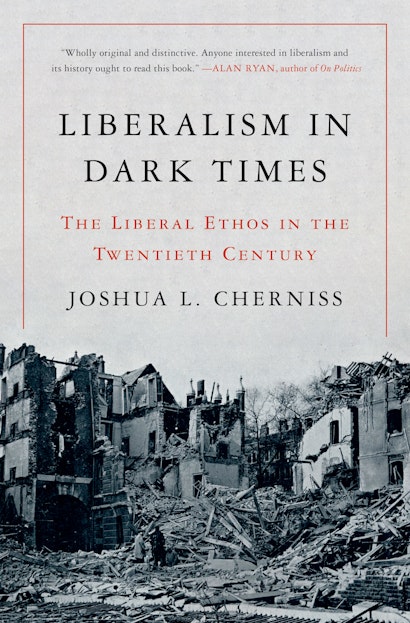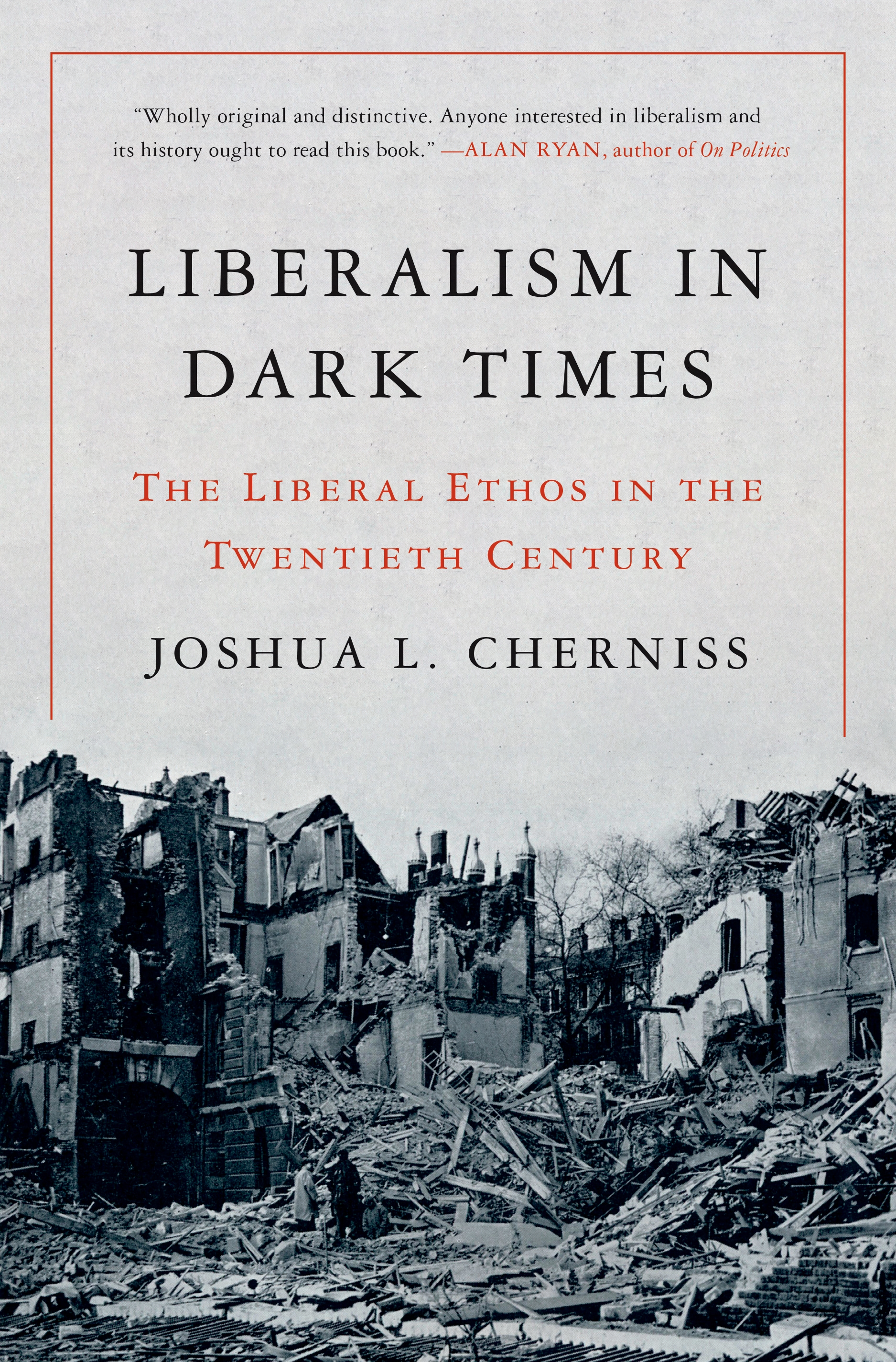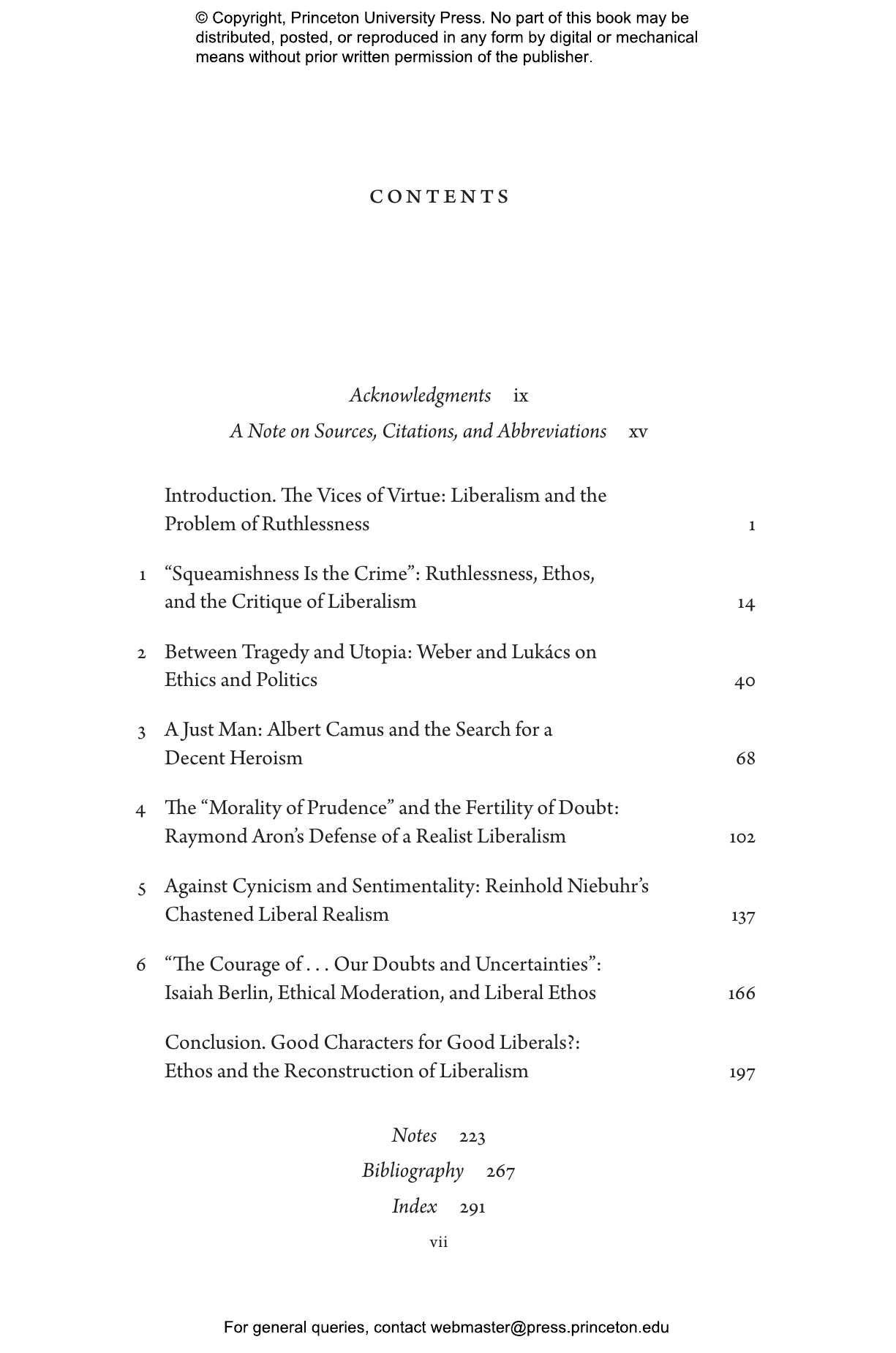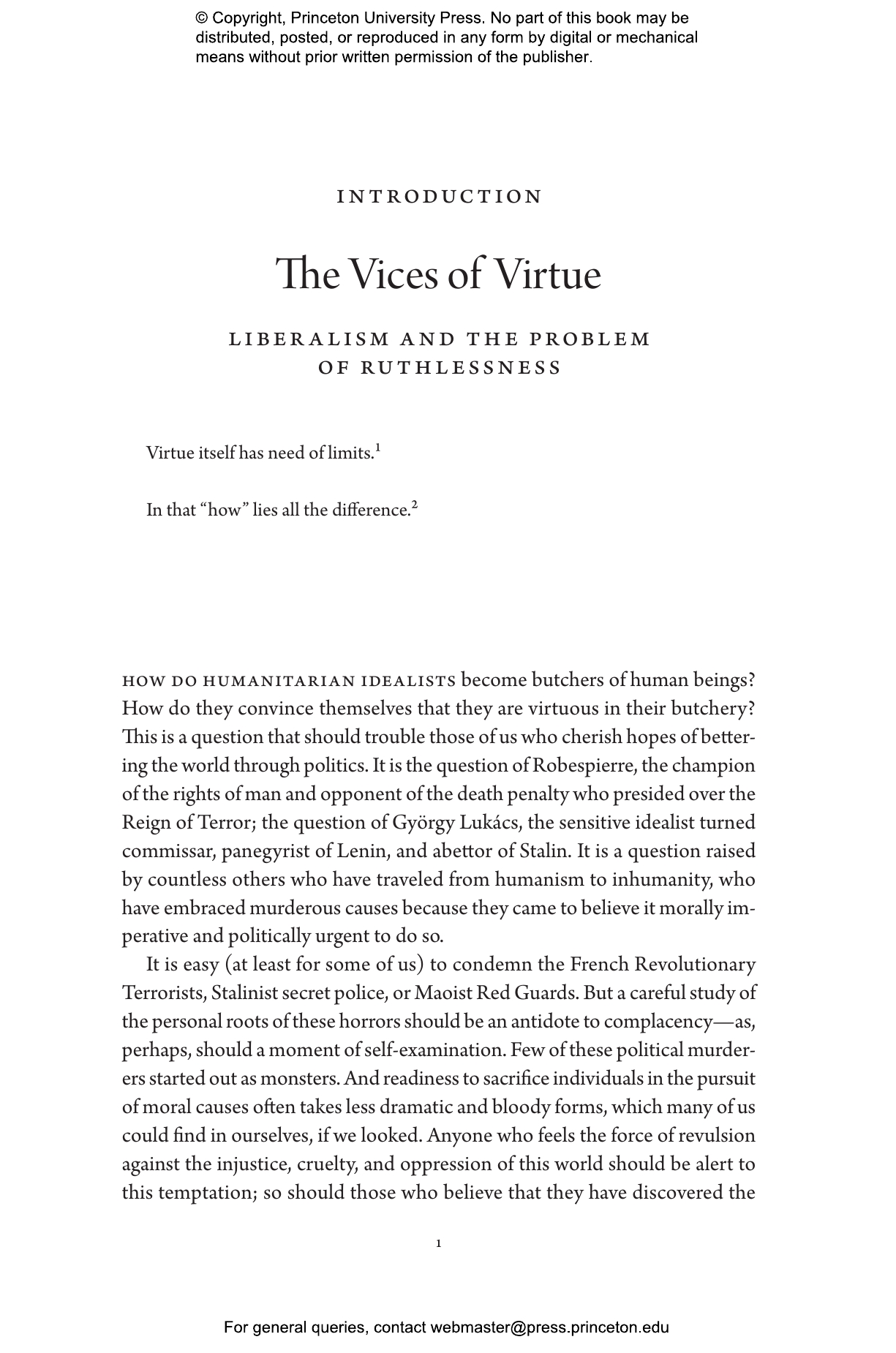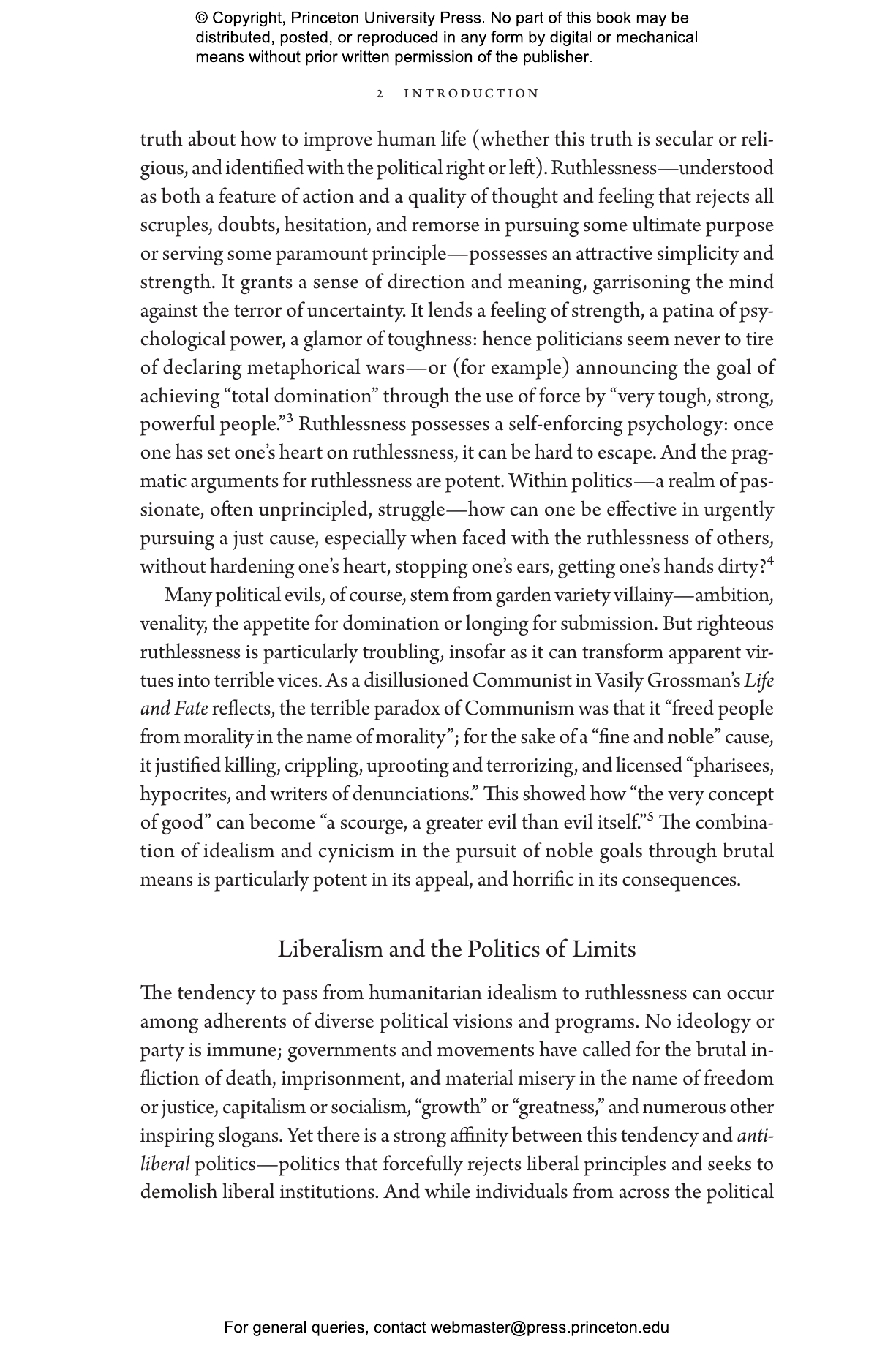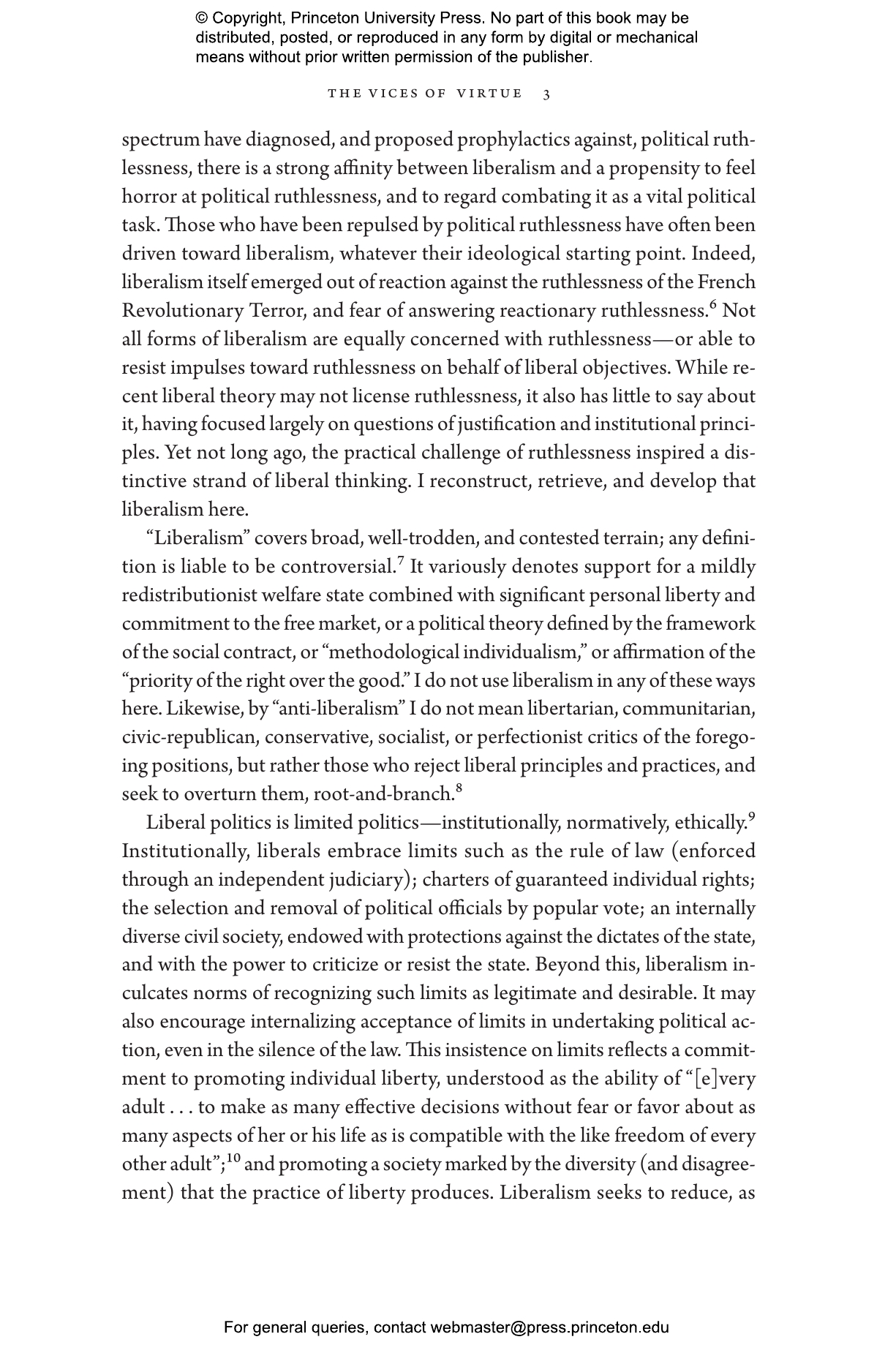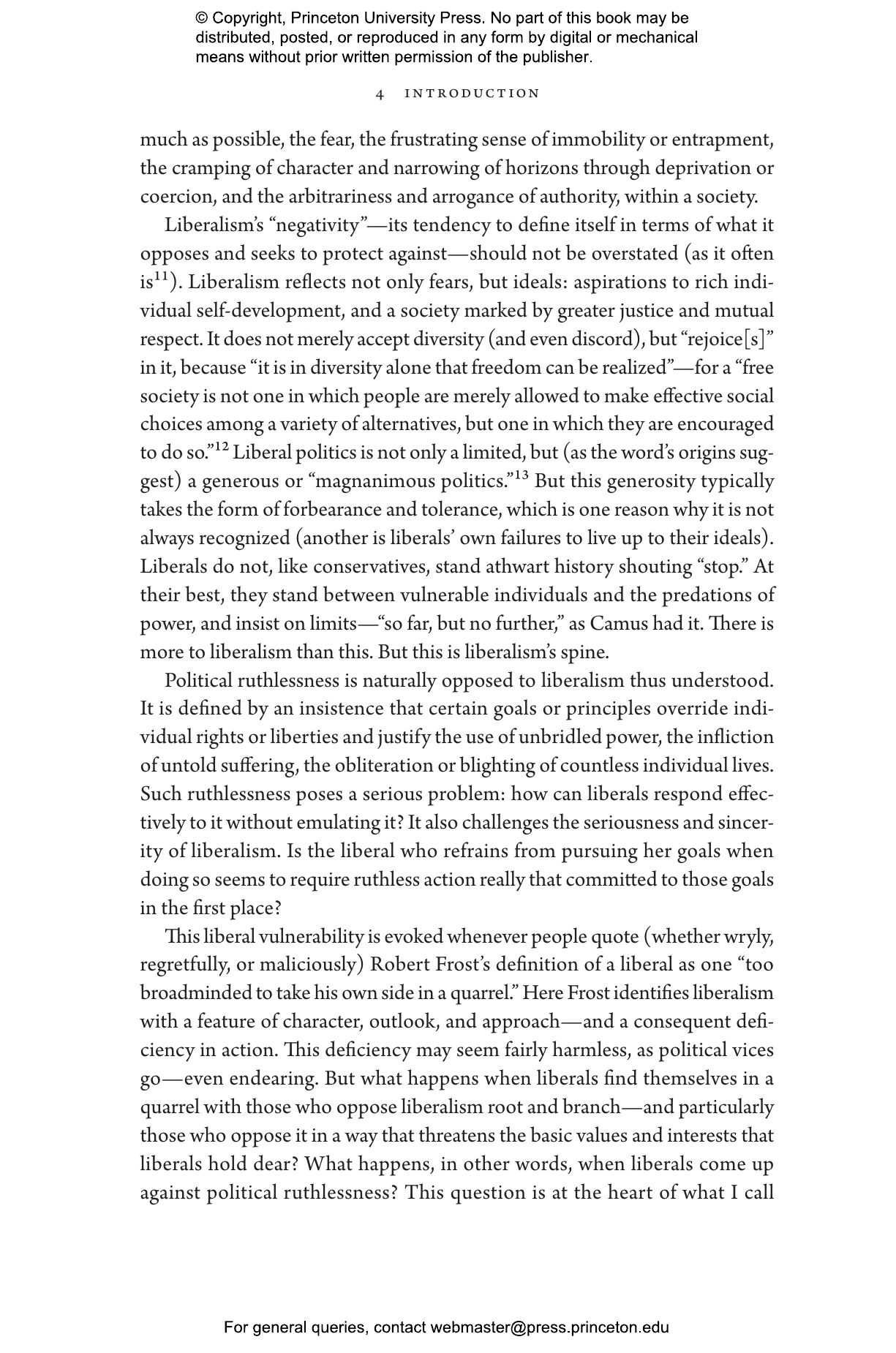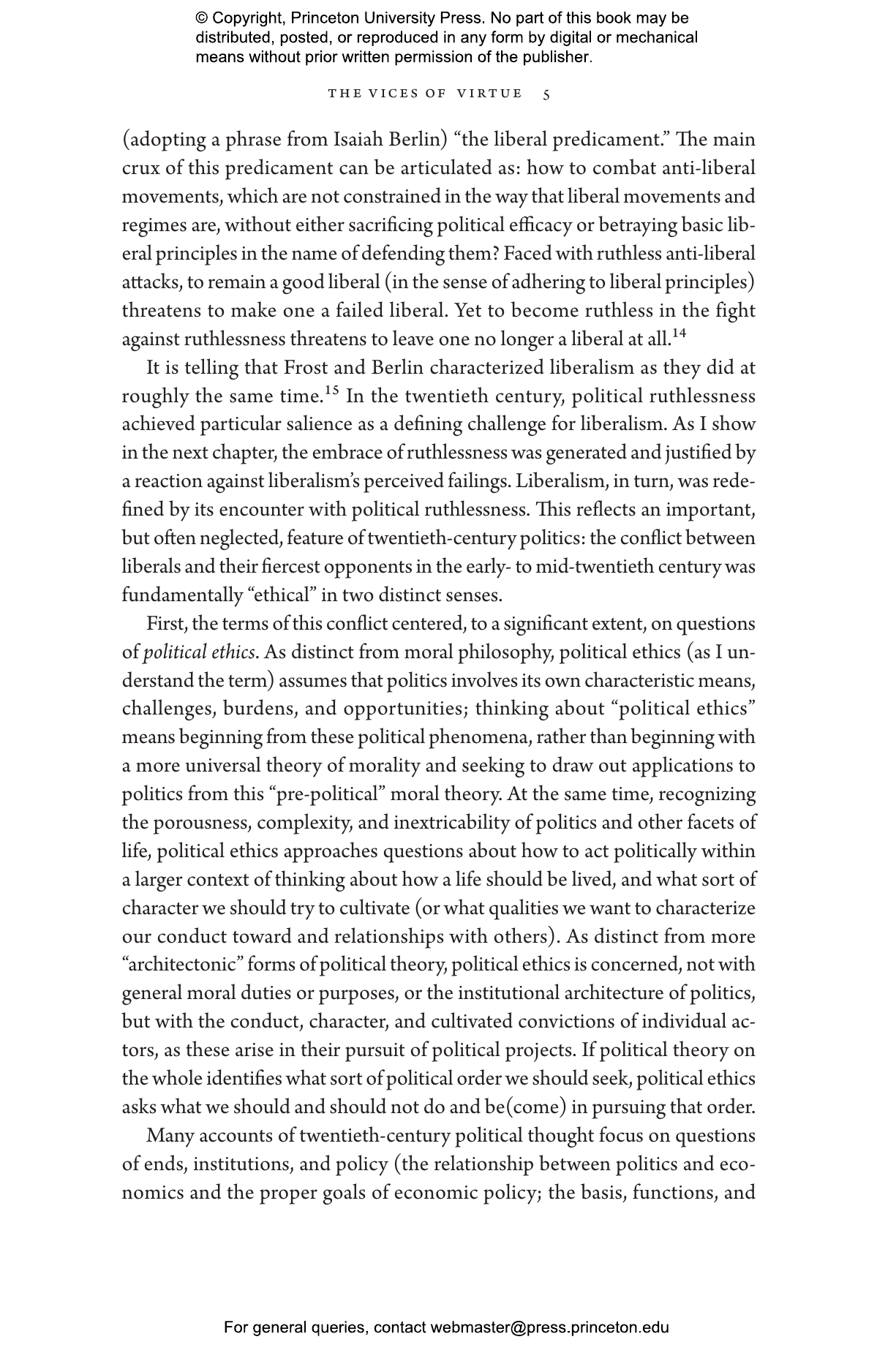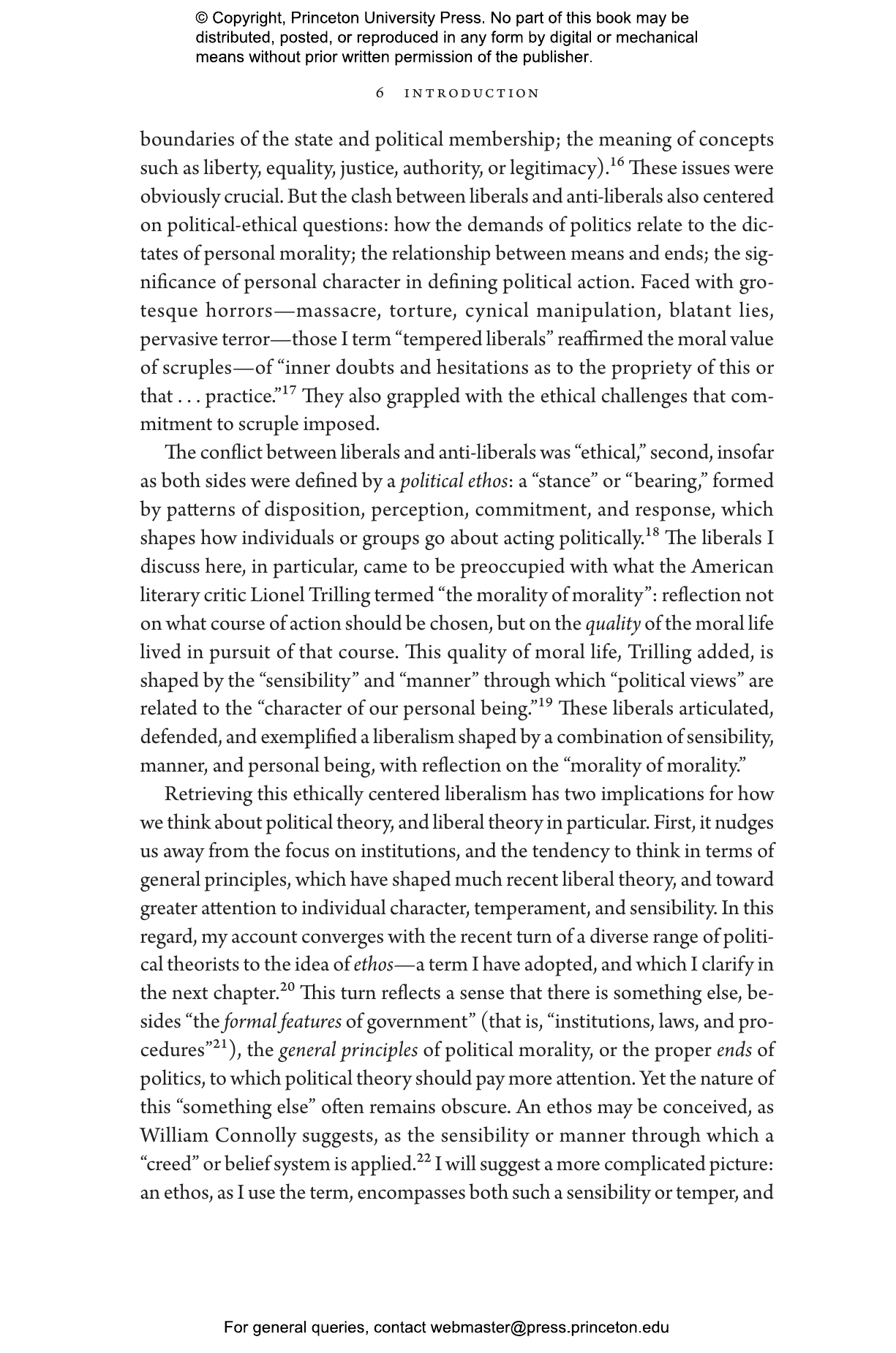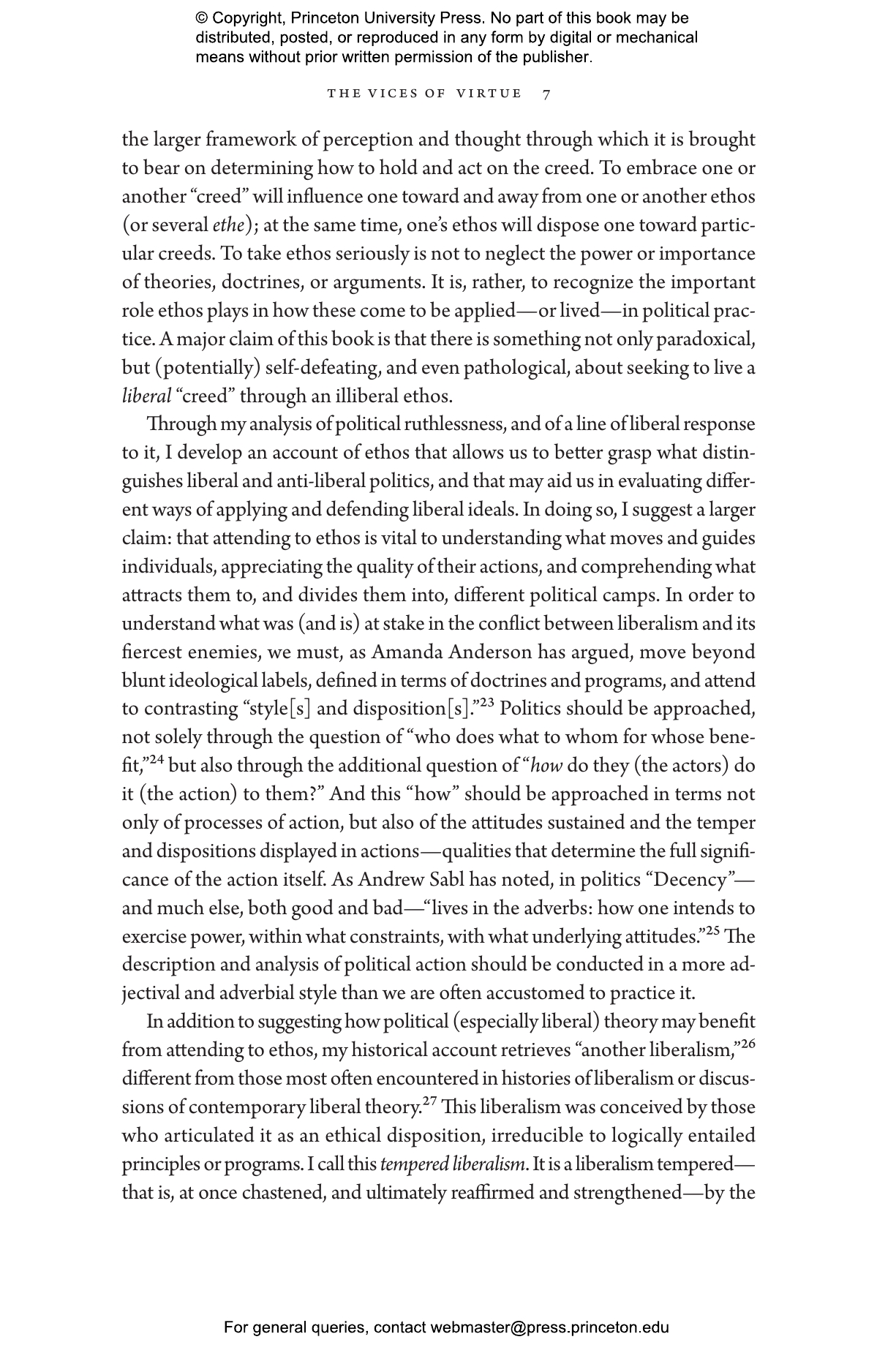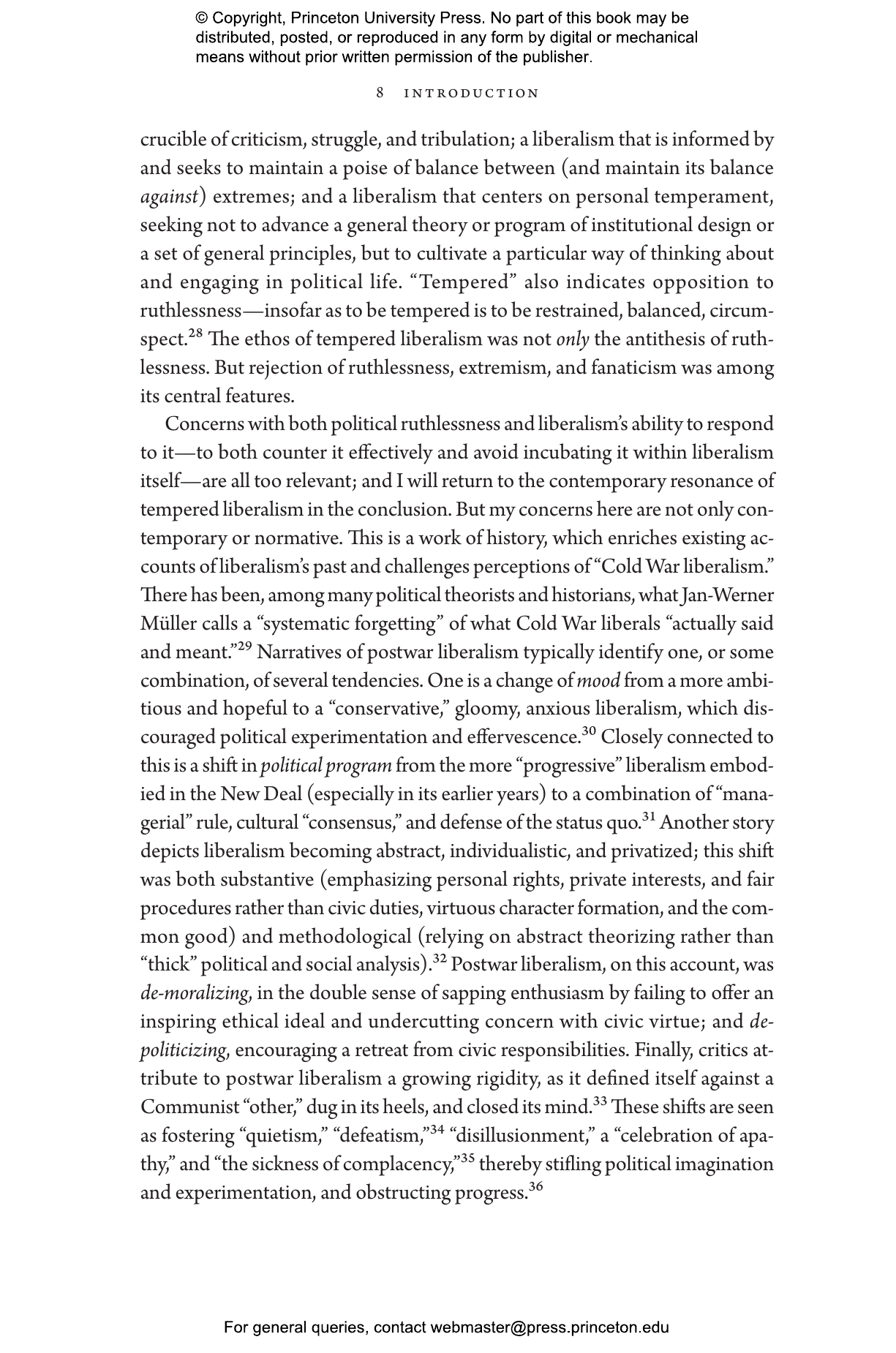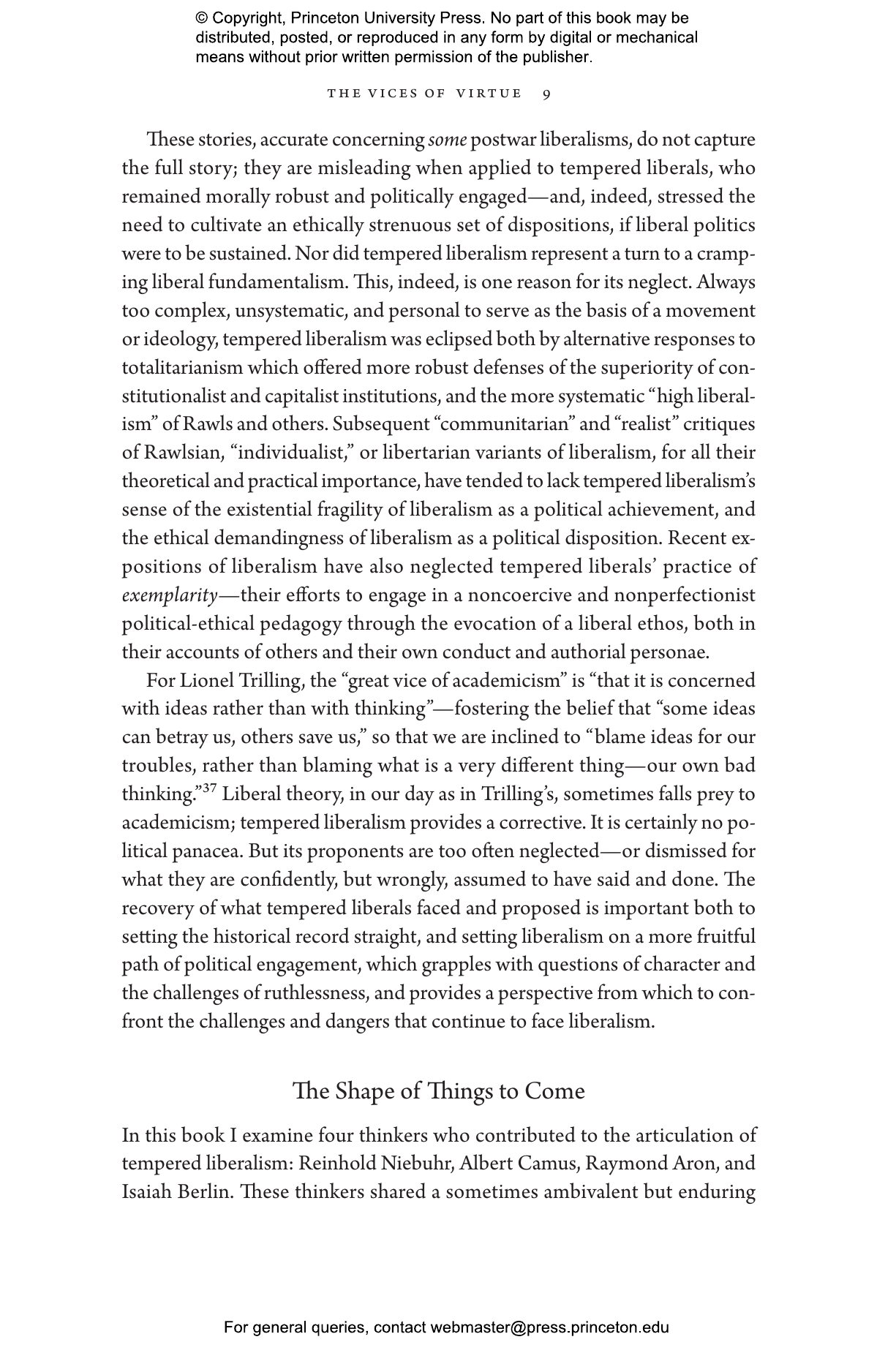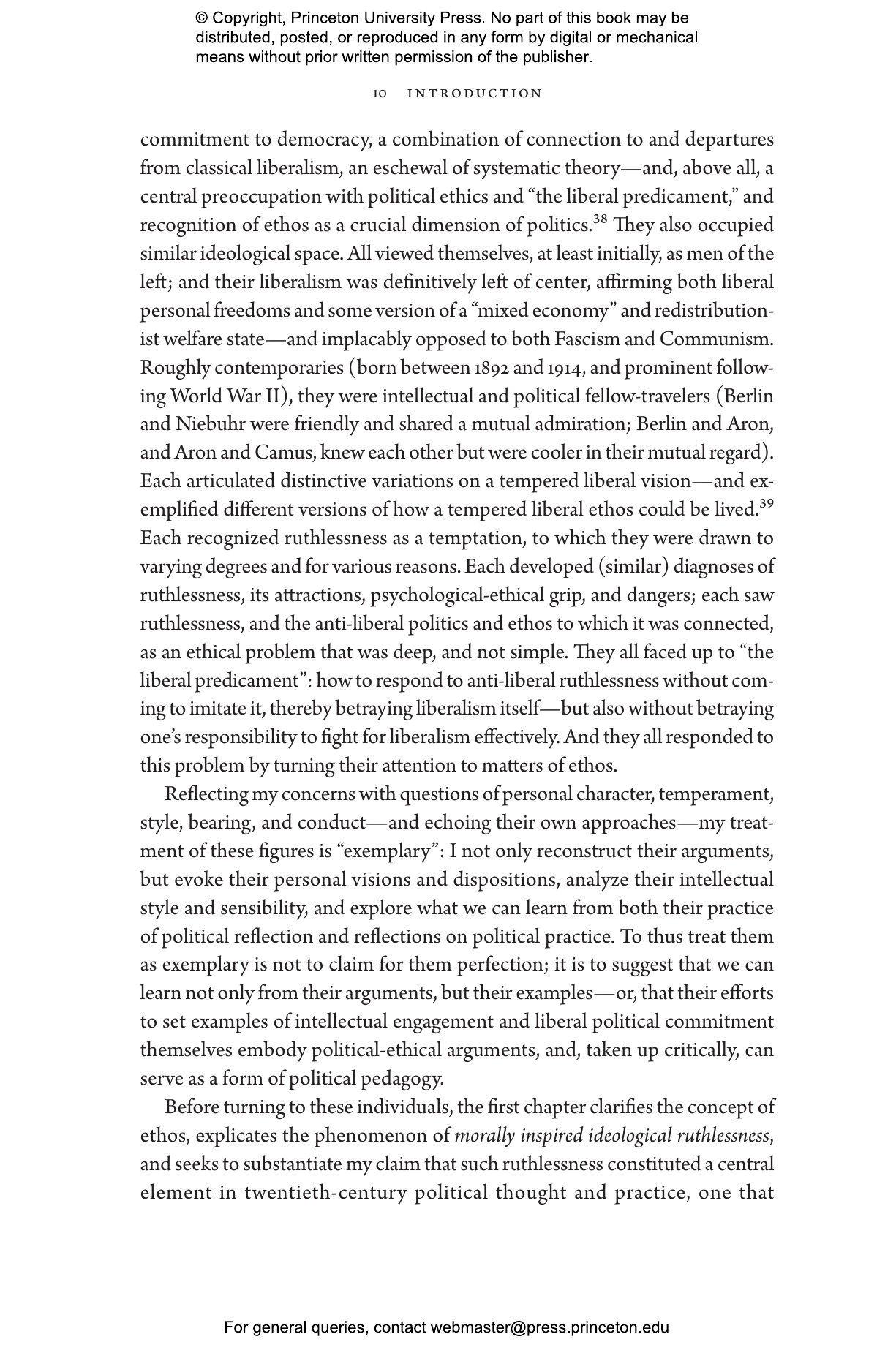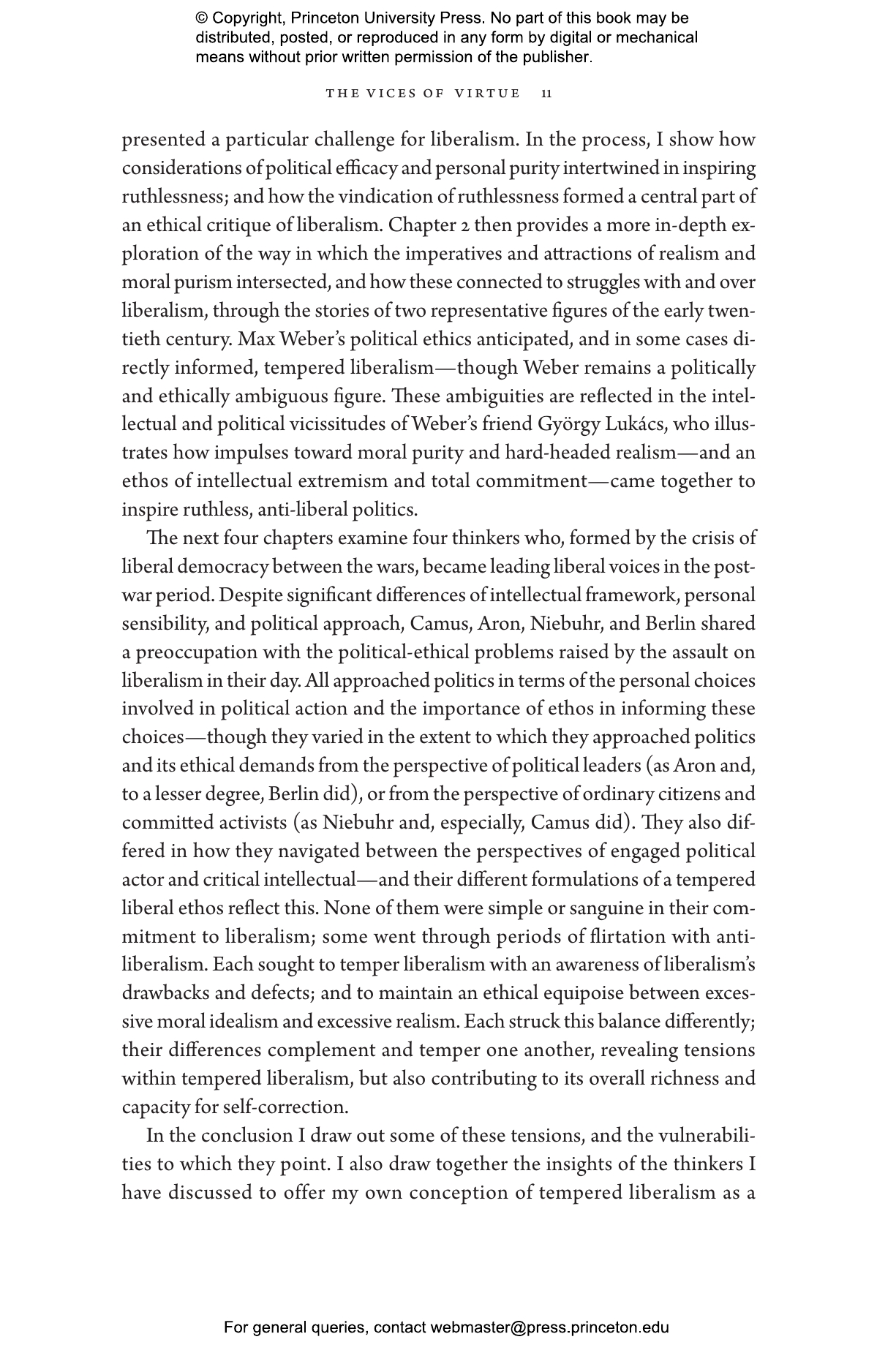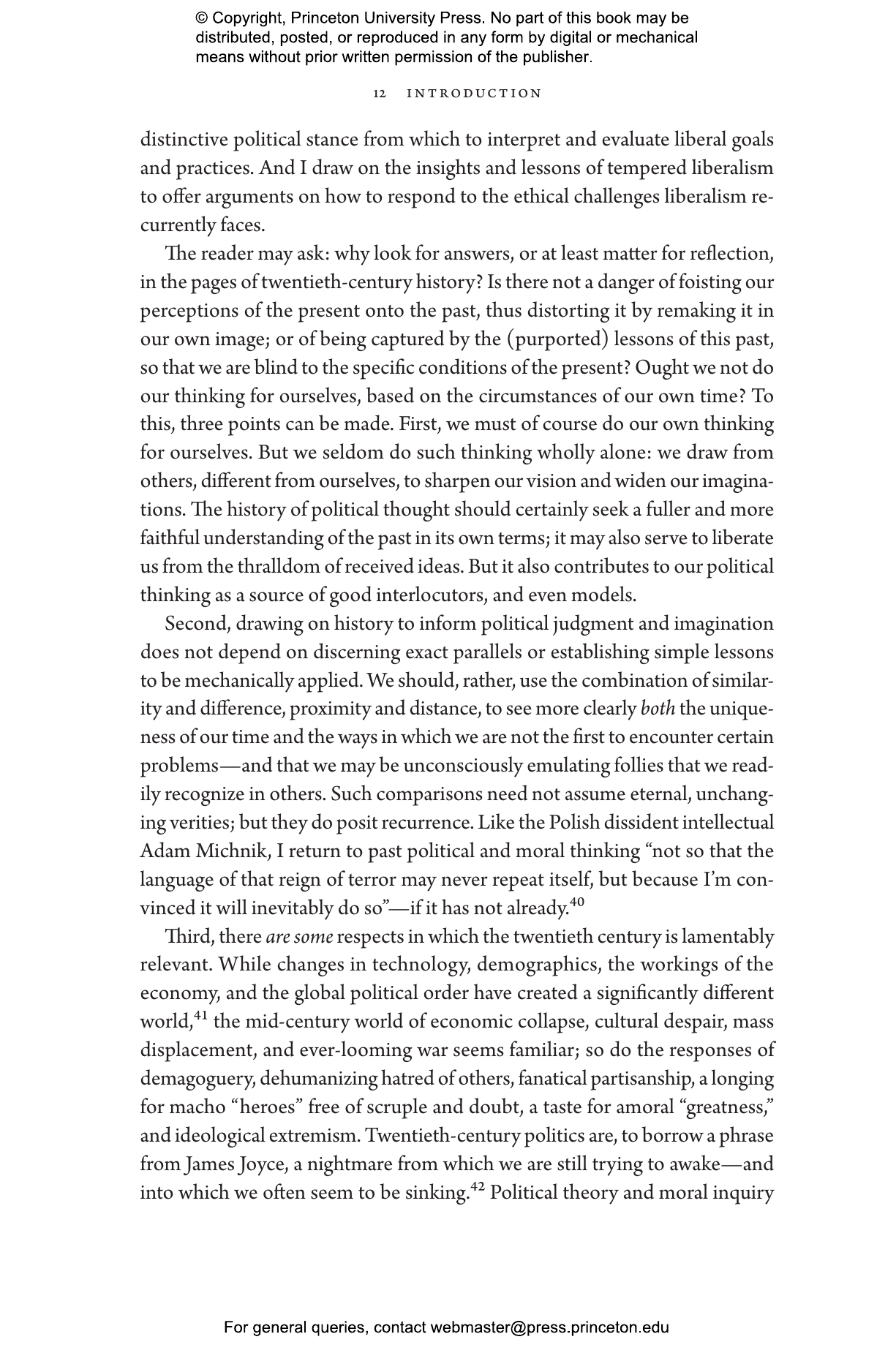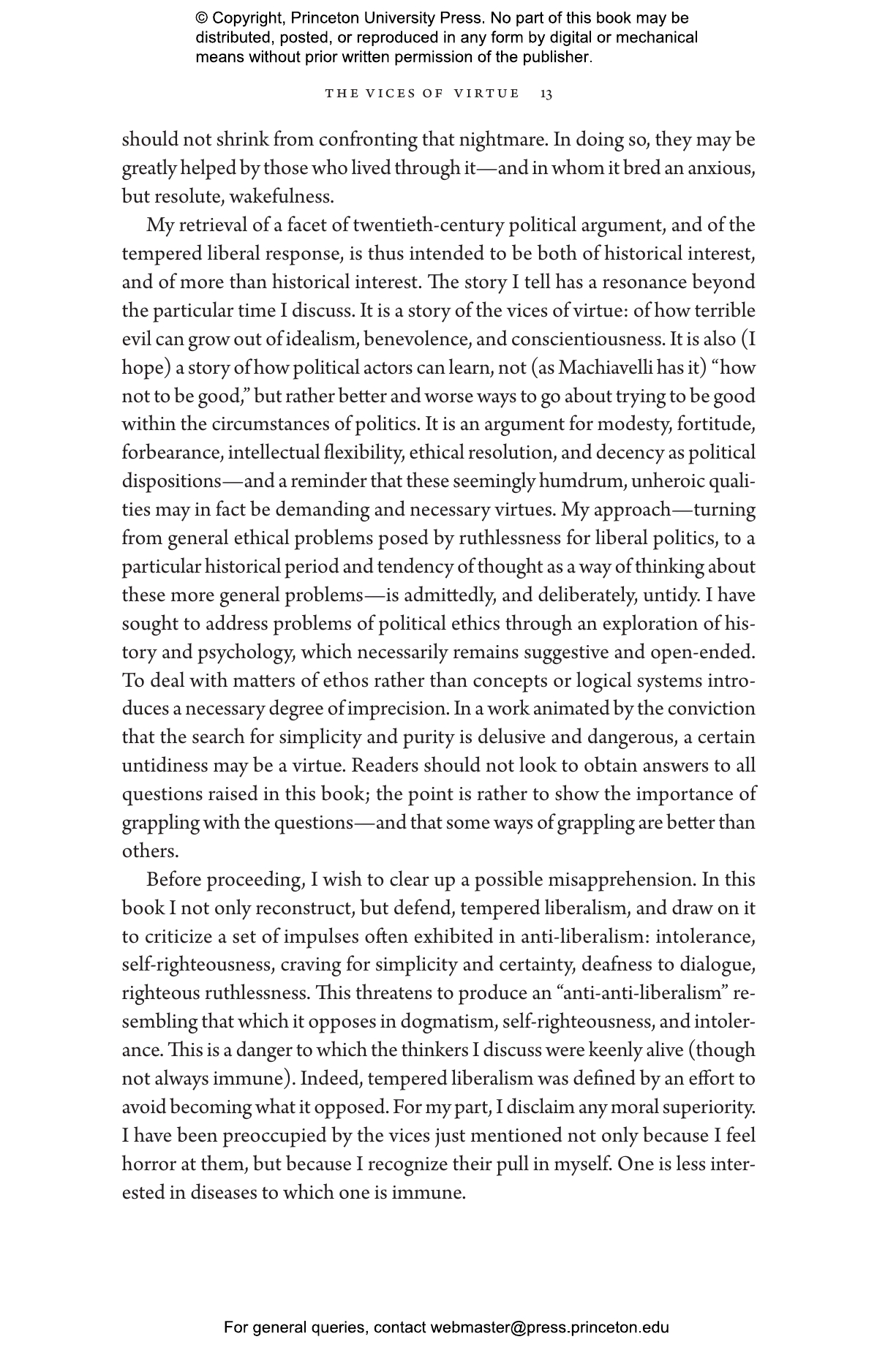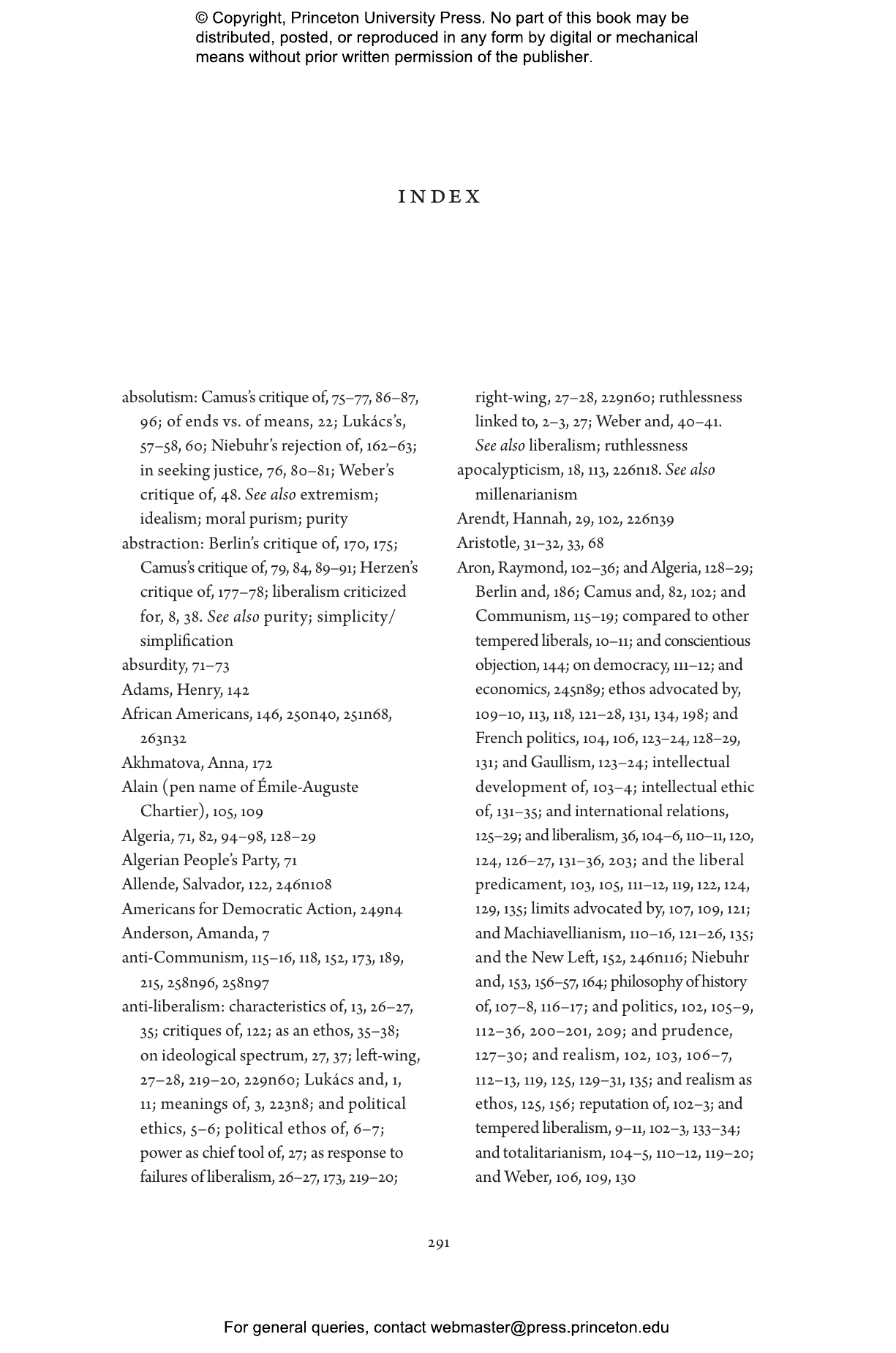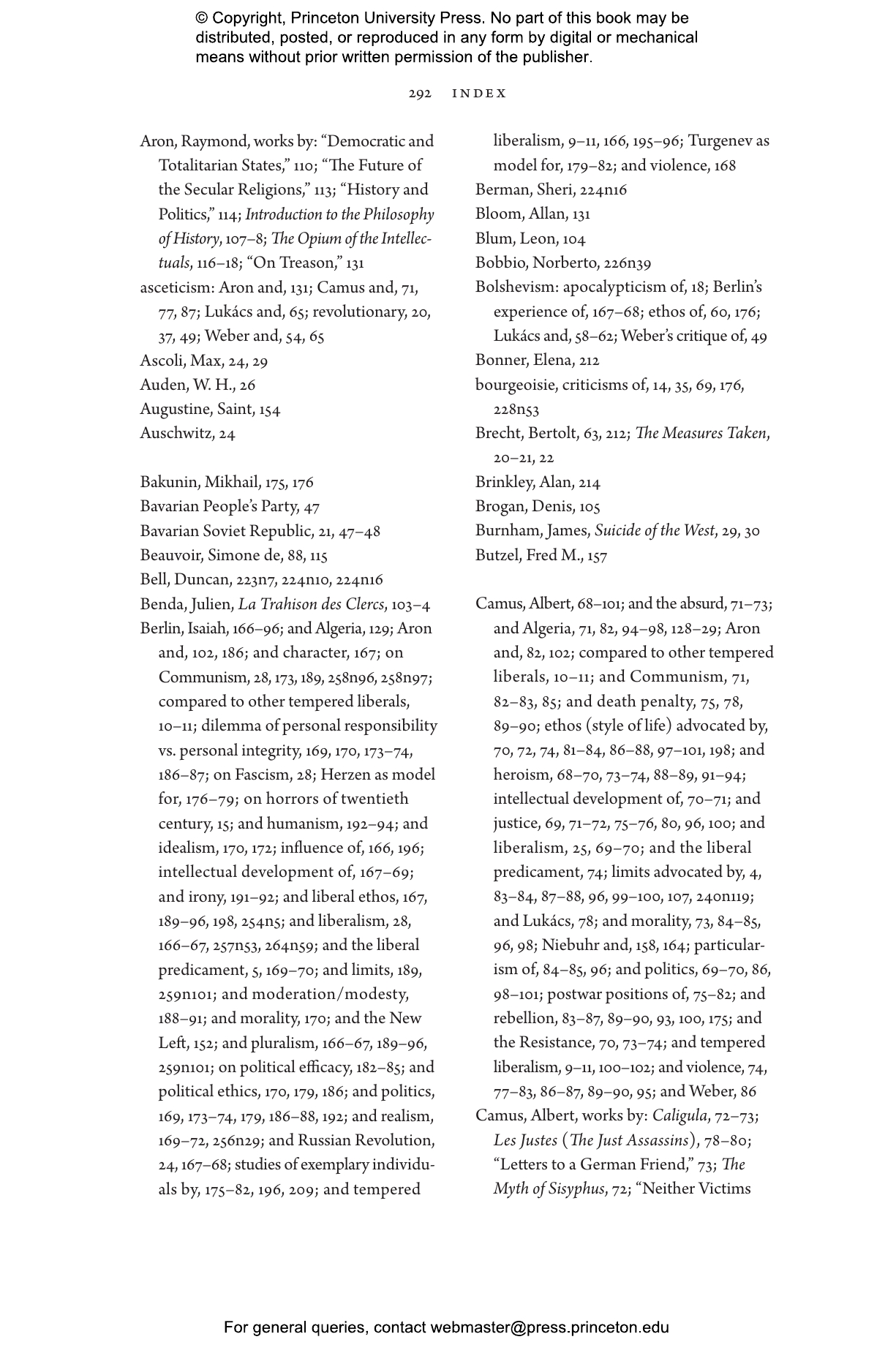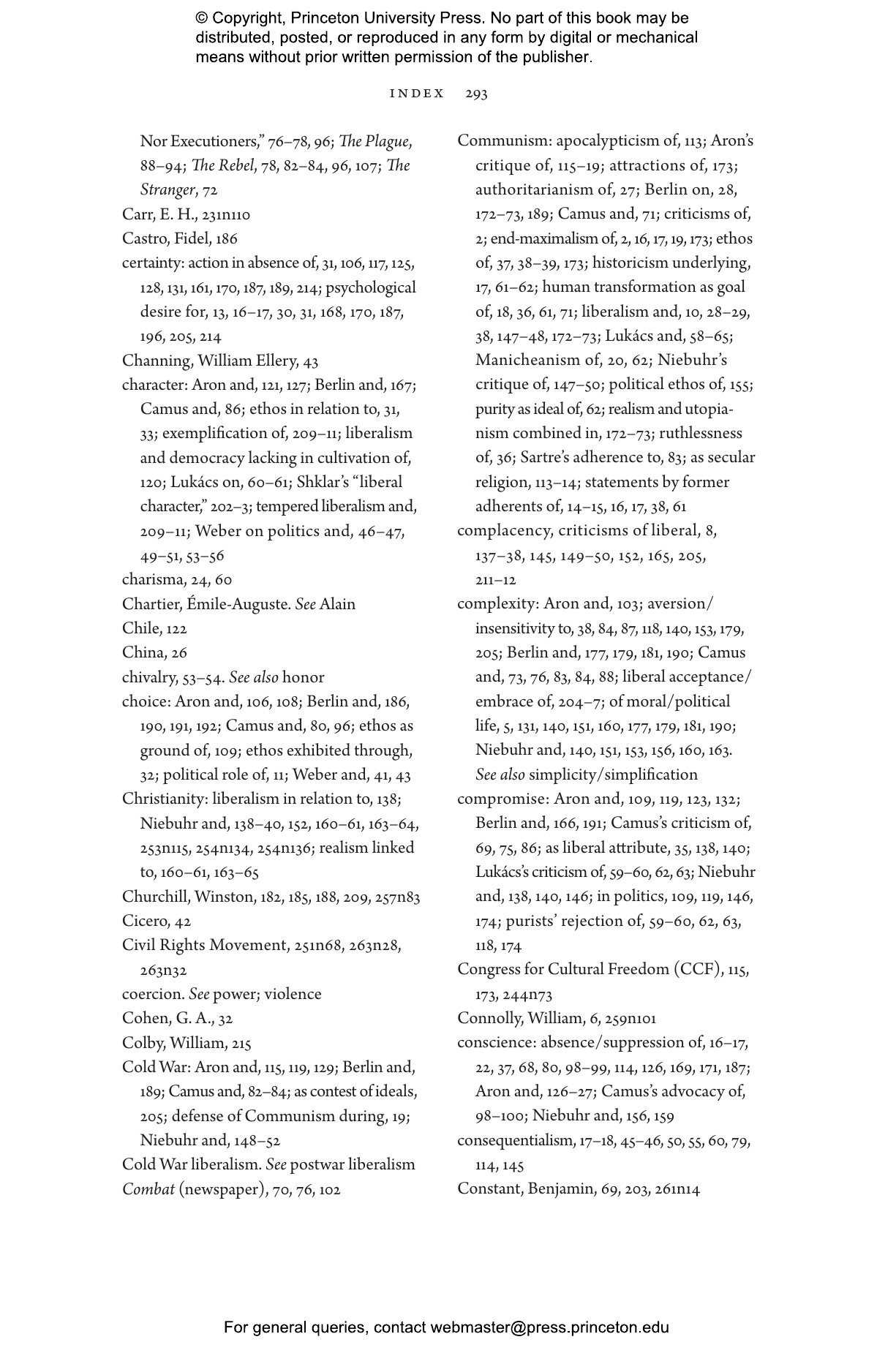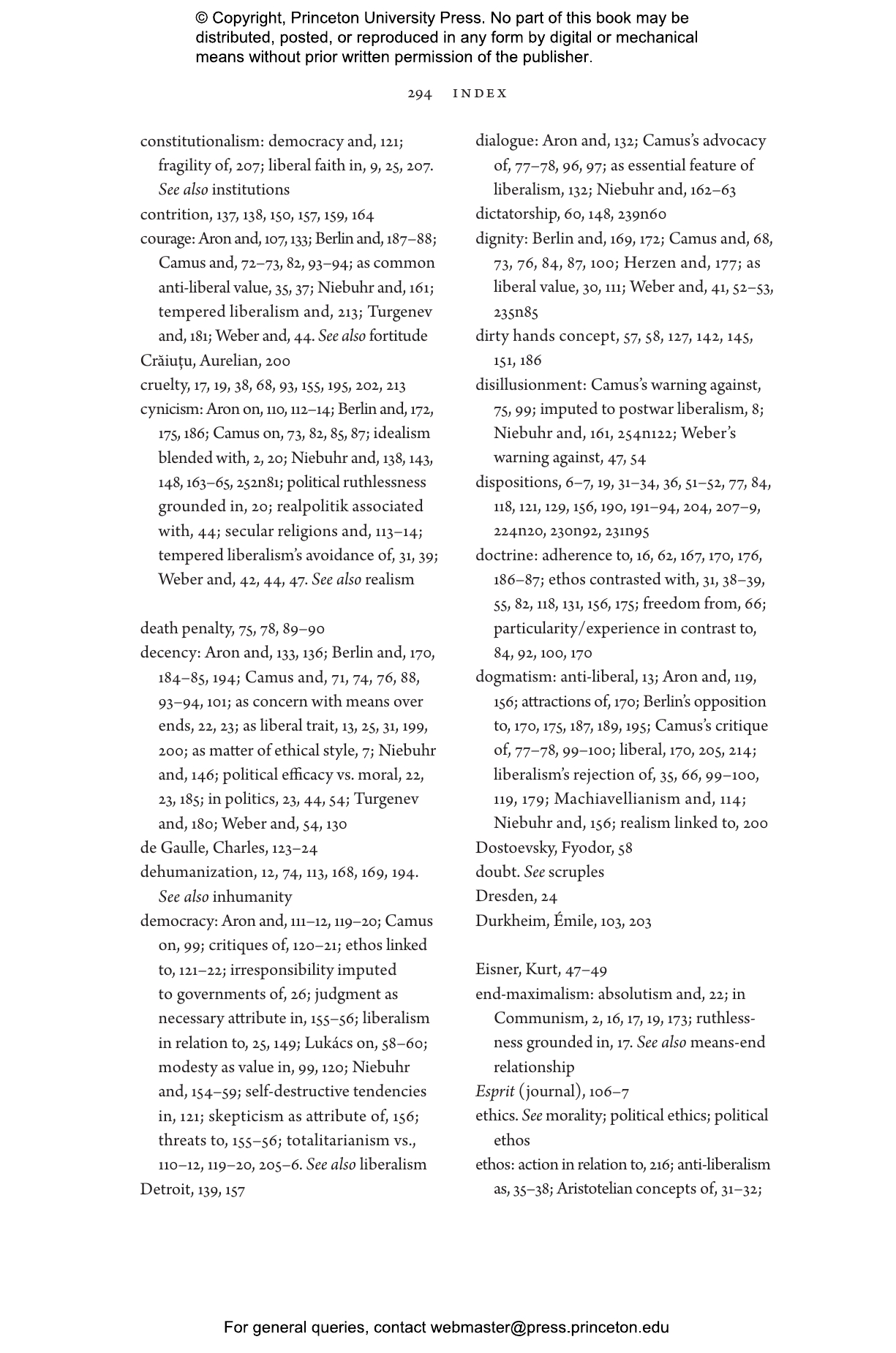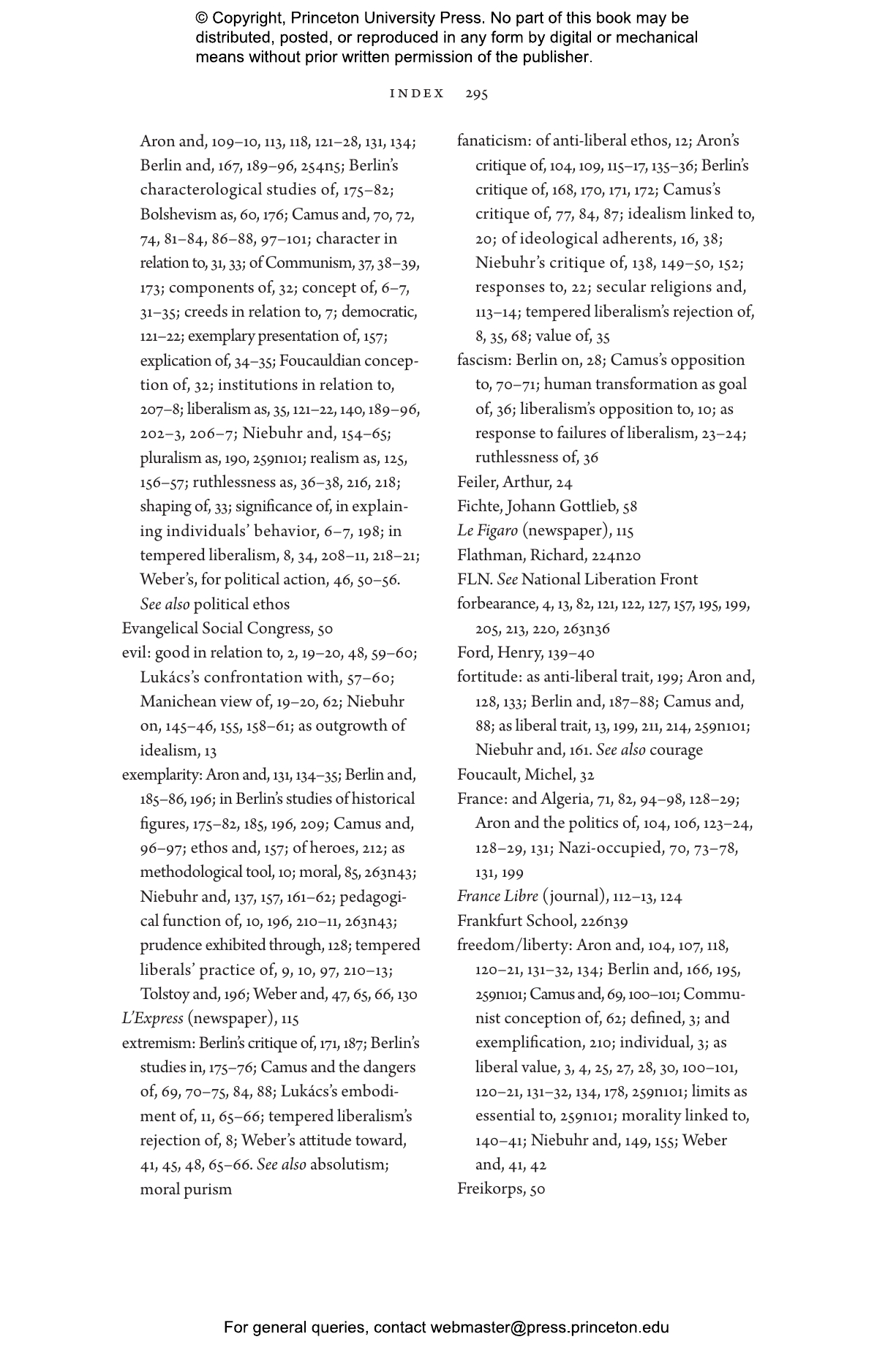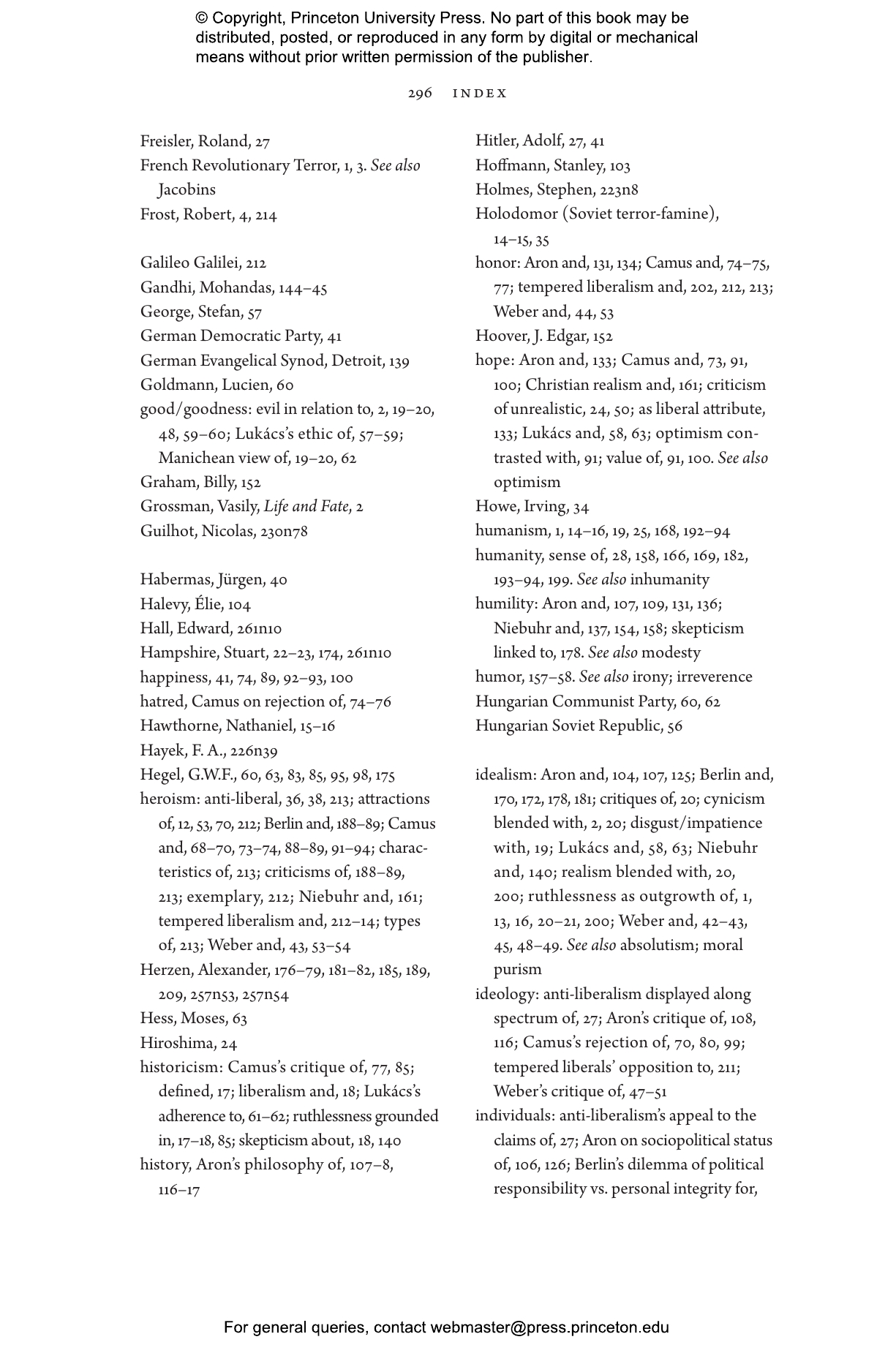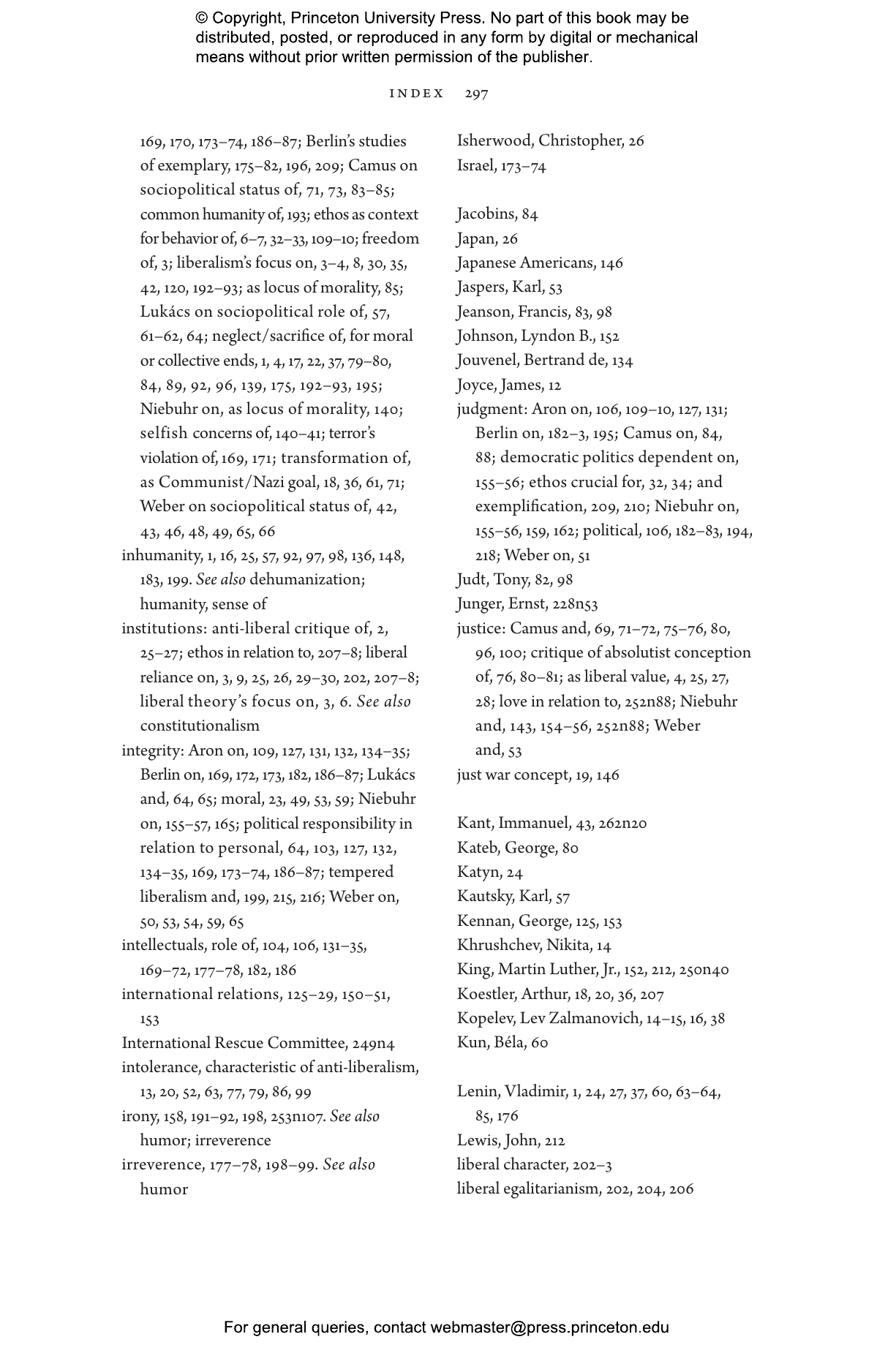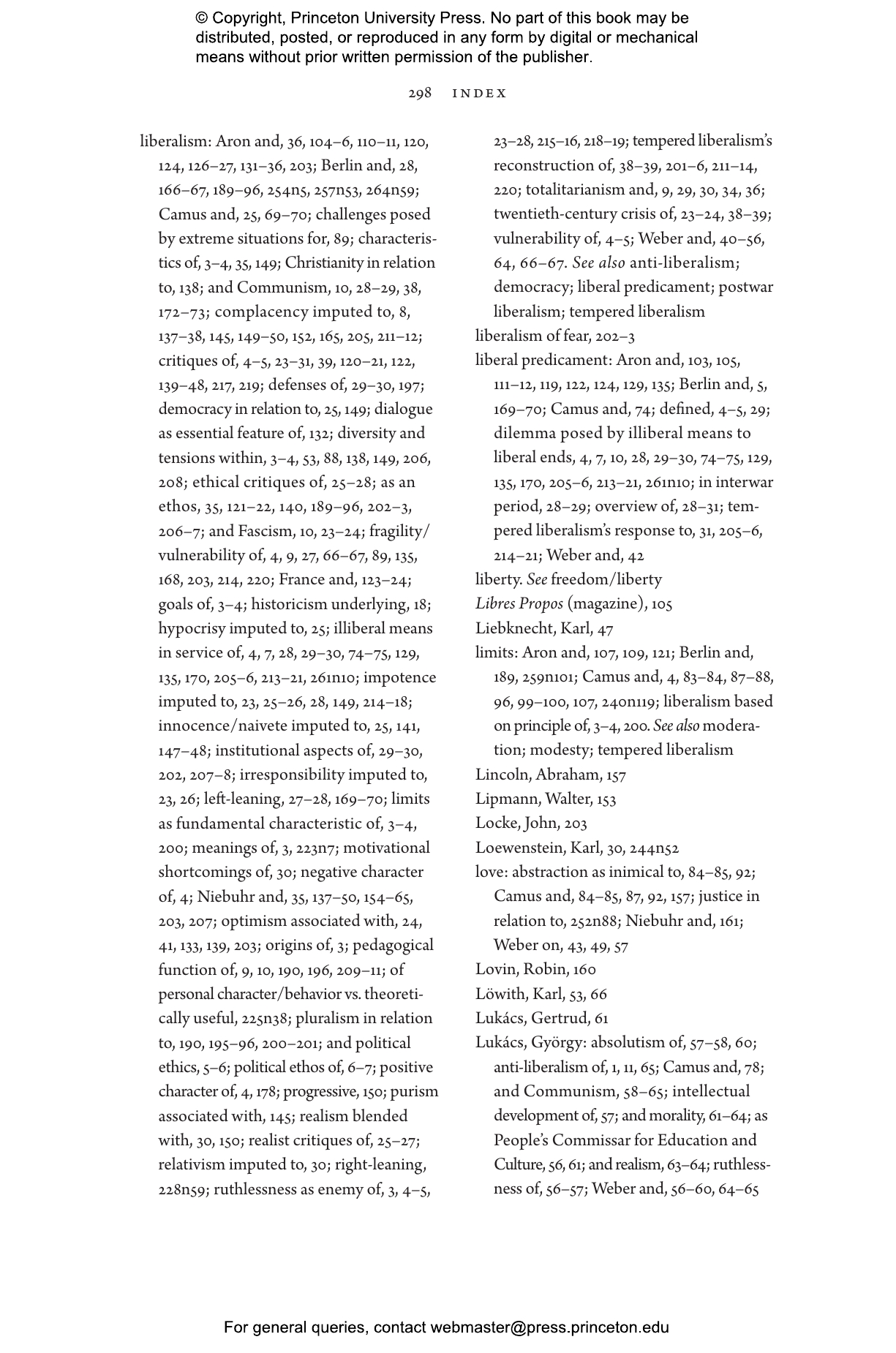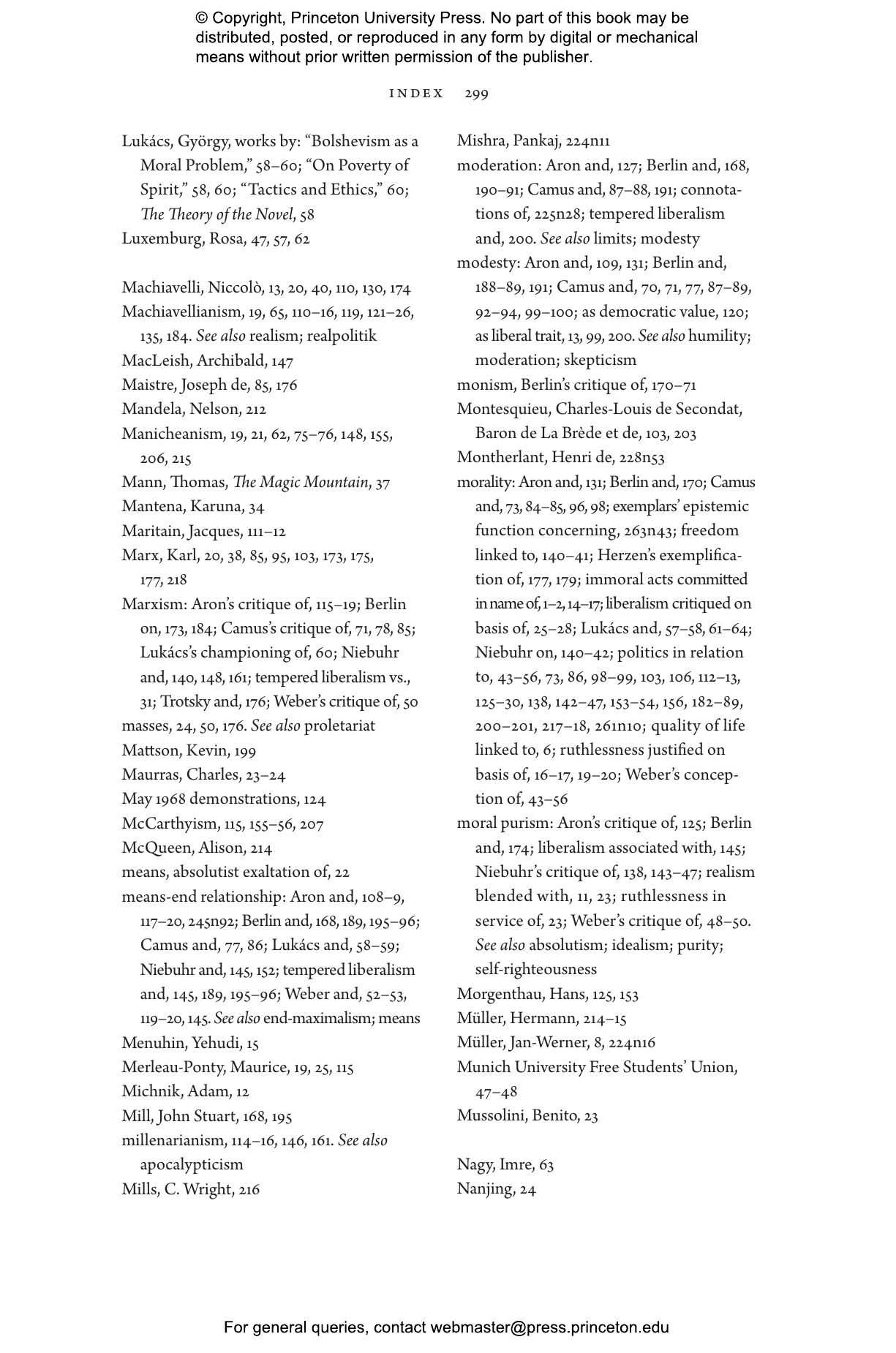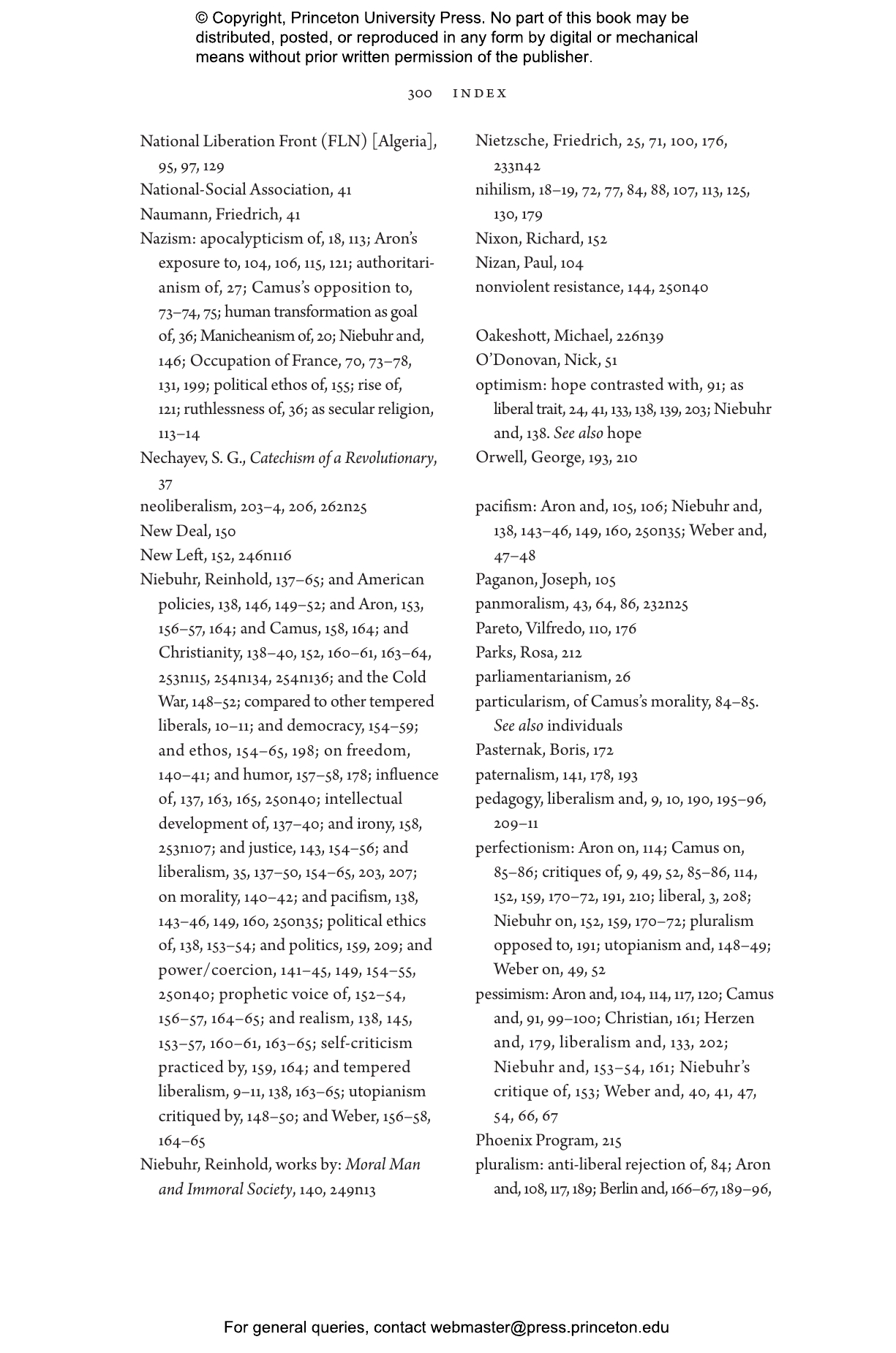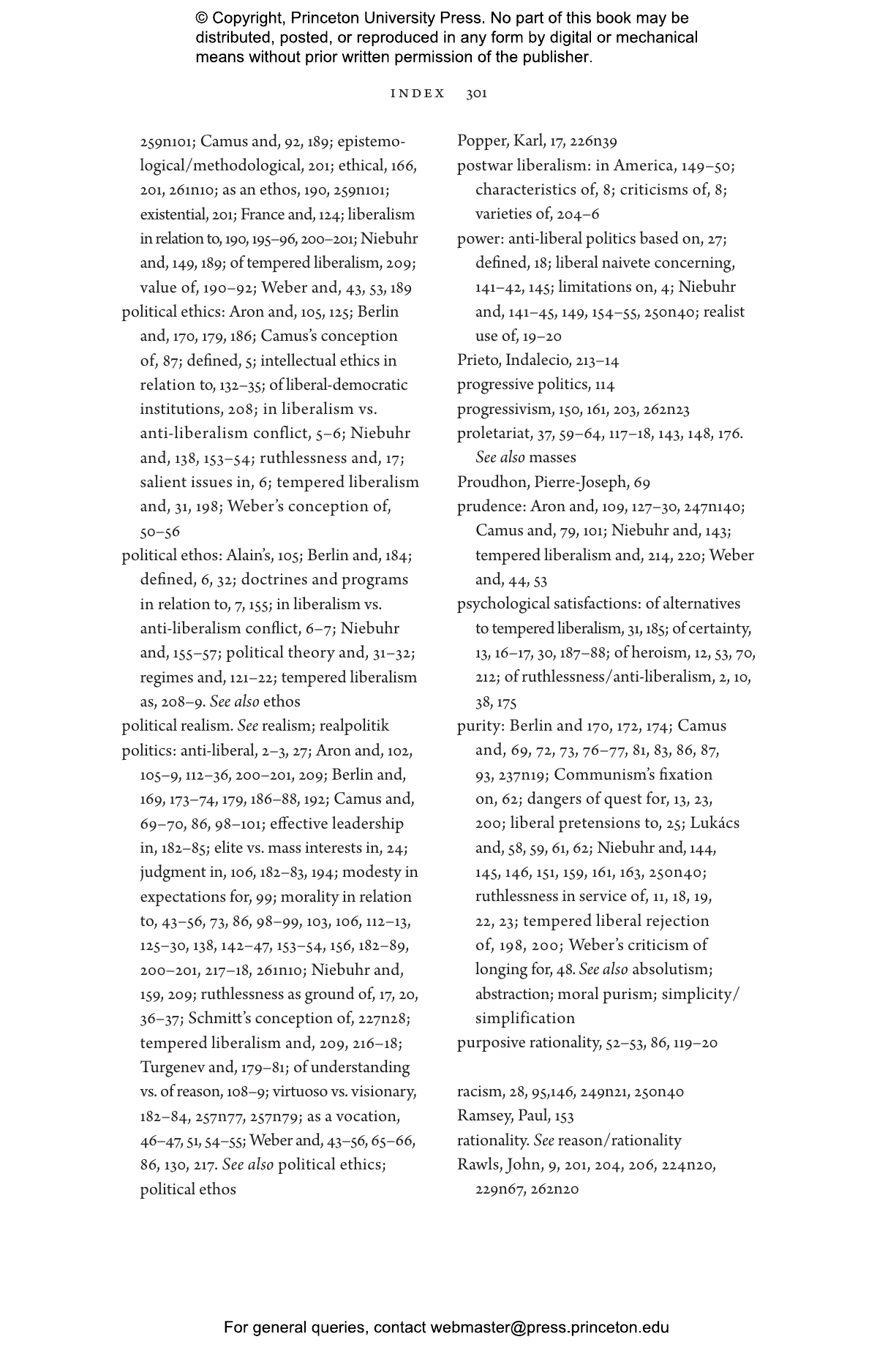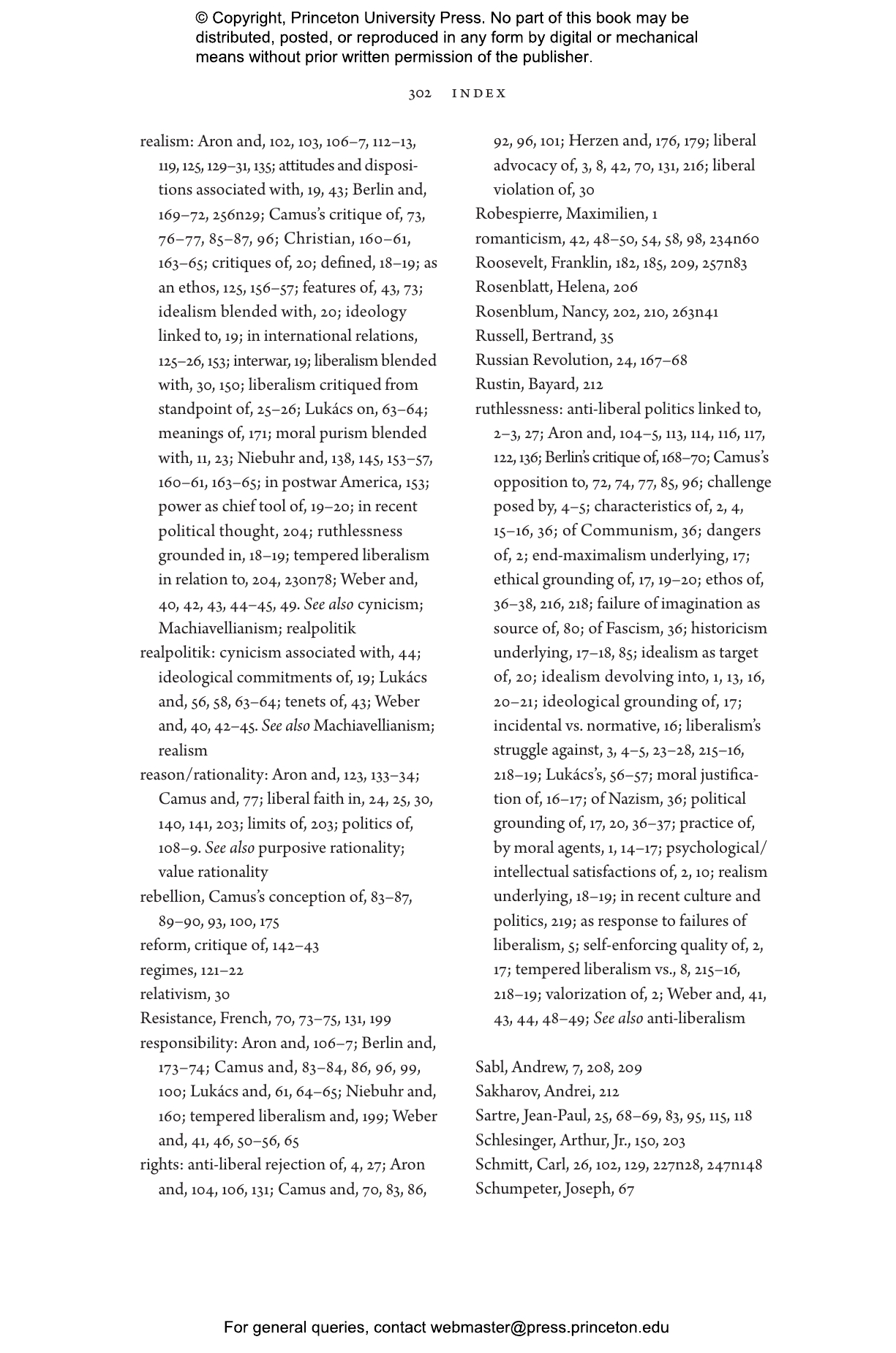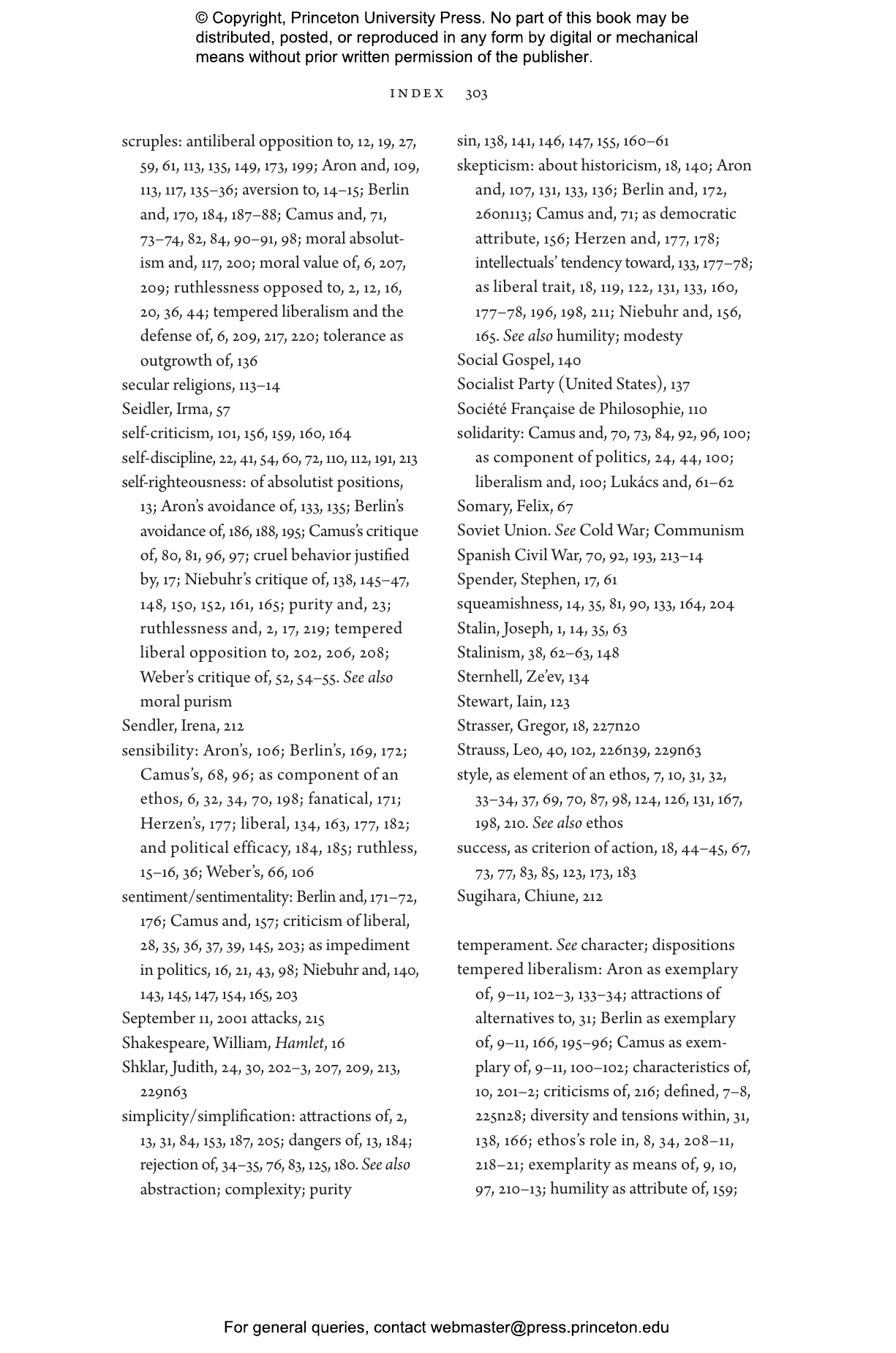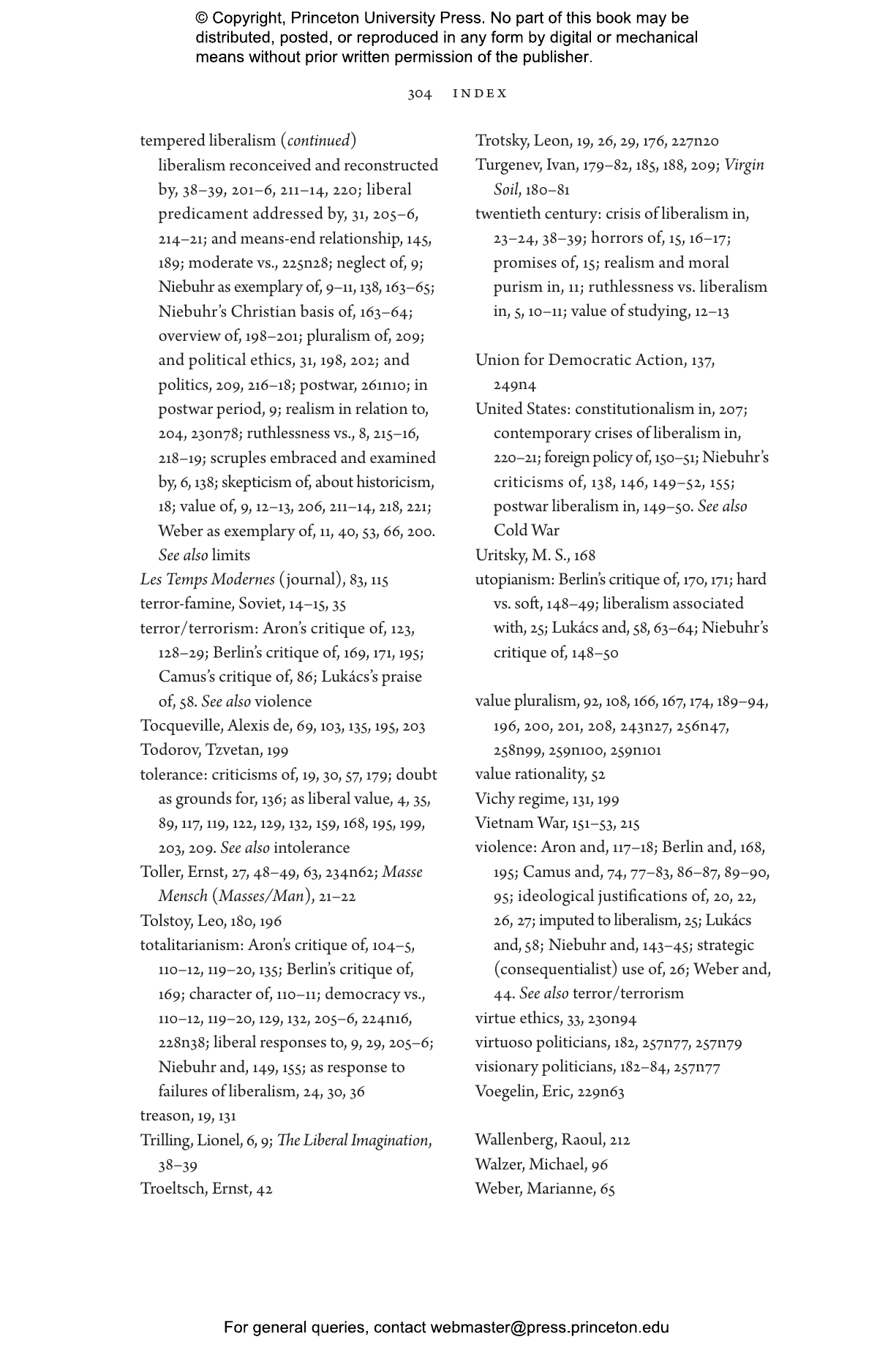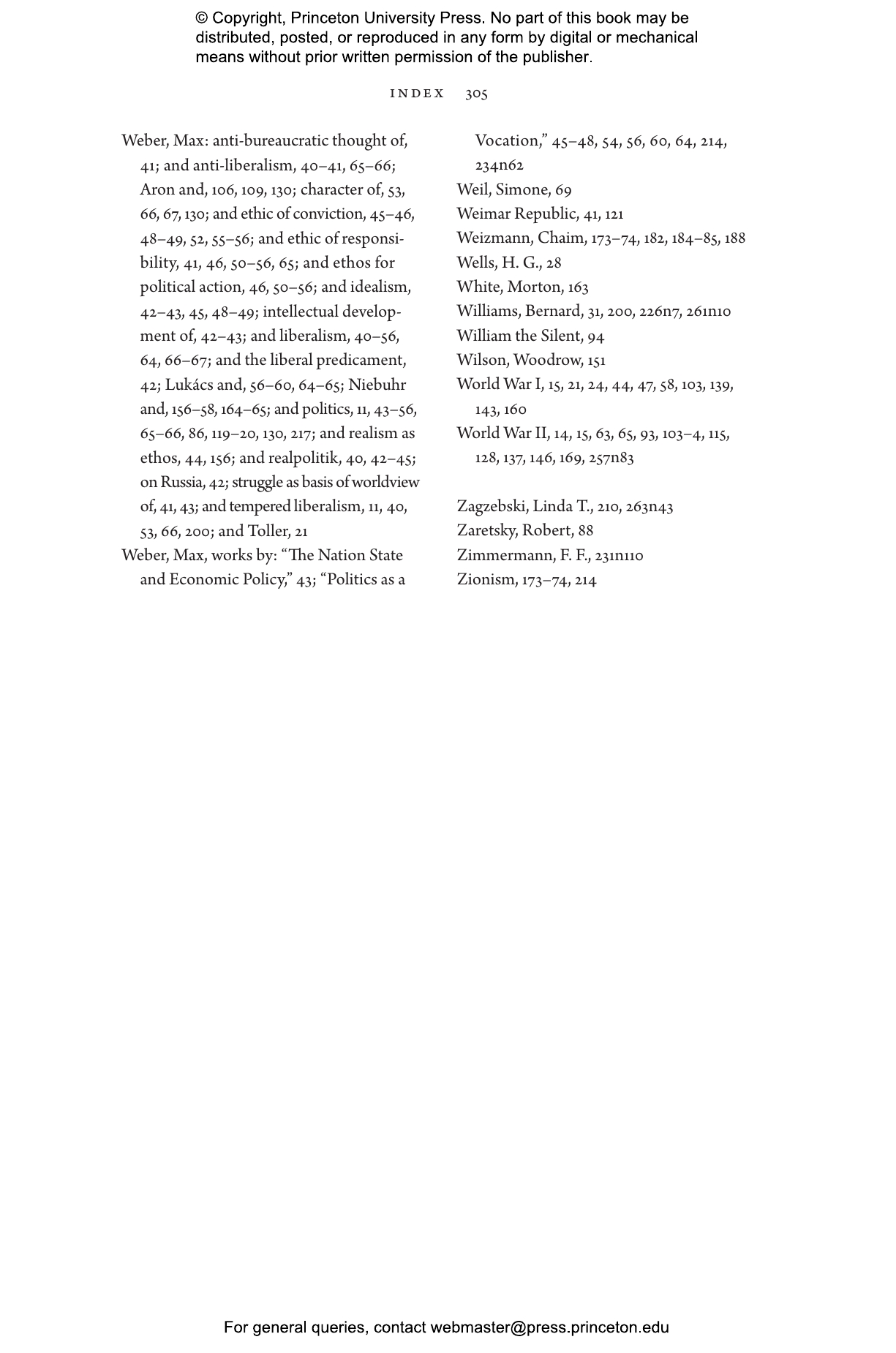Today, liberalism faces threats from across the political spectrum. While right-wing populists and leftist purists righteously violate liberal norms, theorists of liberalism seem to have little to say. In Liberalism in Dark Times, Joshua Cherniss issues a rousing defense of the liberal tradition, drawing on a neglected strand of liberal thought.
Assaults on liberalism—a political order characterized by limits on political power and respect for individual rights—are nothing new. Early in the twentieth century, democracy was under attack around the world, with one country after another succumbing to dictatorship. While many intellectuals dismissed liberalism as outdated, unrealistic, or unworthy, a handful of writers defended and reinvigorated the liberal ideal, including Max Weber, Raymond Aron, Albert Camus, Reinhold Niebuhr, and Isaiah Berlin—each of whom is given a compelling new assessment here.
Building on the work of these thinkers, Cherniss urges us to imagine liberalism not as a set of policies but as a temperament or disposition—one marked by openness to complexity, willingness to acknowledge uncertainty, tolerance for difference, and resistance to ruthlessness. In the face of rising political fanaticism, he persuasively argues for the continuing importance of this liberal ethos.
Awards and Recognition
- A Foreign Affairs Best Book of the Year
"[A] stellar and timely contribution. . . . In Liberalism in Dark Times, Cherniss has done us a great service by pointing us toward the examples [Camus, Aron, Niebuhr, and Berlin] set in their times. In our own times, as we continue to wrestle with the liberal predicament, we would do well to follow their lead."—Daniel Stid, American Purpose
"Cherniss . . . is to be commended for writing the first book-length study on the historical origins and ethical nature of Cold War liberalism."—Daniel Steinmetz-Jenkins, The Baffler
"[A] fascinating book."—G. John Ikenberry, Foreign Affairs
"In this terrifically rich, scholarly, and stimulating book, Cherniss seeks to recover a way of thinking about liberalism as a response to the problem of ruthlessness. . . . Liberalism in Dark Times is a vital book for those who are not willing to give up on [liberalism] quite yet."—Matt Sleat, Perspectives on Politics
"Thoughtful and clearly presented."—Choice Reviews
"Liberalism in Dark Times is a historically sensitive presentation of what Cherniss reconstructs as a tempered liberalism within the interwar period, the Second World War and the Cold War as reservoirs for the political thinking of Aron, Berlin, Camus and Niebuhr. . . . the book is not only deep in its detailed readings of Weber, Lukács, Camus, Aron, Niebuhr and Berlin, but also broad- and open-minded in the intellectual engagements with the variety of traditions and positions in contemporary political theory."—Anders Berg-Sørensen, Contemporary Political Theory
"A persistent political temptation is to fight fire with fire—to defend liberalism by illiberal means, to become ruthlessly liberal. In Cherniss’s hands, the liberal predicament becomes the challenge of sustaining the moral fortitude to refuse ruthlessness. . . . Ruthlessness corrodes the liberal ethos, eventually transforming us into our foes"—Robert B. Talisse, Review of Politics
"Liberalism in Dark Times [is] an important, impressive and well documented book. . . .A much needed study now that the liberal democracies face the rise of autocratic governments around the world as well as the rise of internal autocratic movements."—Joseph C. Bertolini, The European Legacy
"Cherniss extracts continuities across his cohort of thinkers with singular rigor and richness; he continually teases out meaningful distinctions between the positions these figures held, the subtle but significant degrees of emphasis on realism or idealism that distinguish their respective characters and conclusions; and he provides an especially enlivening view of the way that each thinker’s personal experiences shaped their liberal temper. . . . As an historical study, peering into the lives and minds of major midcentury thinkers, this book seems to me exemplary. Every text Cherniss engages with yields suggestive nuances through his careful analysis."—Ian Afflerbach, H-Diplo
"Important and original. . . .Liberalism in Dark Times remains one of the best studies of its kind."—Iain Stewart, History of European Ideas
"Liberalism in Dark Times as a whole is more than its parts, as Cherniss draws perceptive comparisons between his protagonists throughout the book. . . . Those interested in twentieth-century liberal thought have much to learn from his carefully researched work."—Kei Hiruta, Global Intellectual History
“Wholly original and distinctive. Anyone interested in liberalism and its history ought to read this book.”—Alan Ryan, author of On Politics
“In this beautifully written book, Joshua Cherniss draws on the history of liberalism to make a compelling and timely argument. Today, when liberalism faces an existential crisis, and people are being drawn to political extremes, liberals should not abandon their political ethos to embrace the tactics of their illiberal adversaries. Rather, they should learn from thinkers like Niebuhr, Camus, Aron, and Berlin, who advocated a ‘tempered liberalism’ during a crisis that was not all that different from our own. Cherniss’s book offers many important insights into the political thought of these key thinkers and valuable lessons for our own time.”—Helena Rosenblatt, author of The Lost History of Liberalism
“A remarkably well-developed case for a ‘tempered liberalism.’ Rejecting dangerous strains of political thought—both antiliberalism on the right and a lack of complexity on the left—Cherniss charts a political theory that celebrates humility, pluralism, limits, skepticism, humor, realism, and modesty. The result is an expansive intellectual tool kit for the future.”—Kevin Mattson, author of When America Was Great: The Fighting Faith of Liberalism in Postwar America
“Liberalism in Dark Times offers an original contribution to a timely and important topic: the crisis and future of liberalism. By drawing on a wide range of thinkers from Max Weber and Albert Camus to Reinhold Niebuhr, Isaiah Berlin, and Raymond Aron, Joshua Cherniss explores the ethos of liberalism and its complex relationship with the tradition of political moderation. A wonderful book for our troubled times.”—Aurelian Craiutu, author of Faces of Moderation: The Art of Balance in an Age of Extremes
